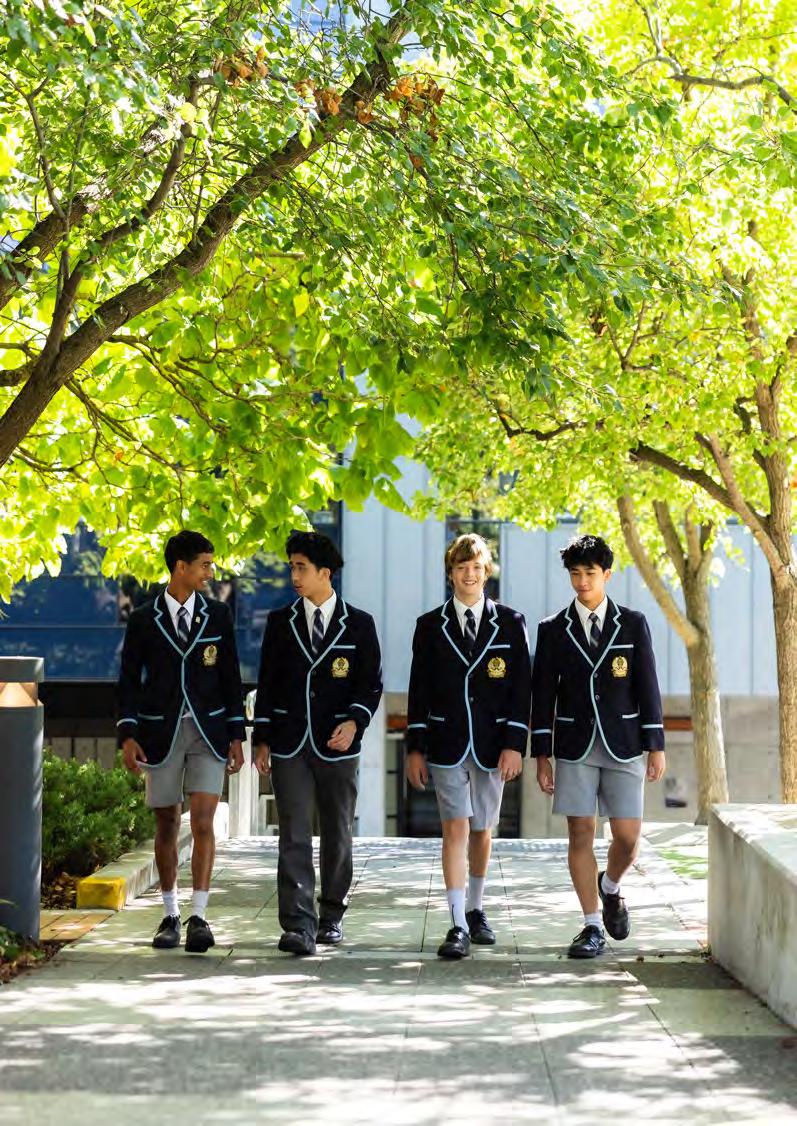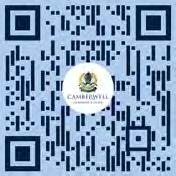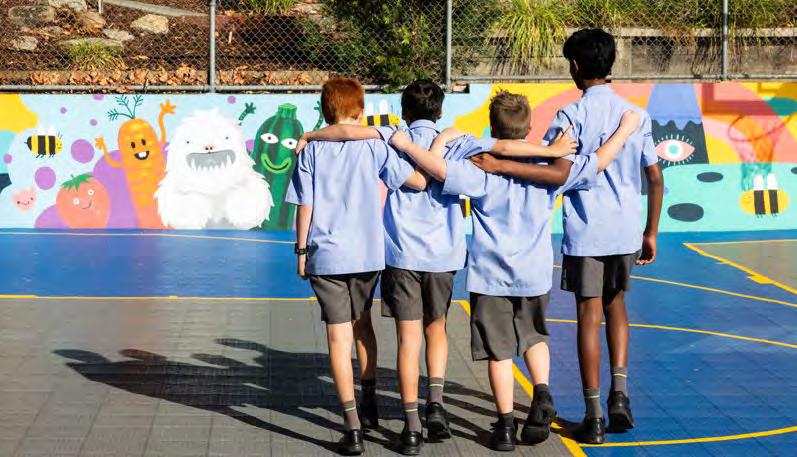


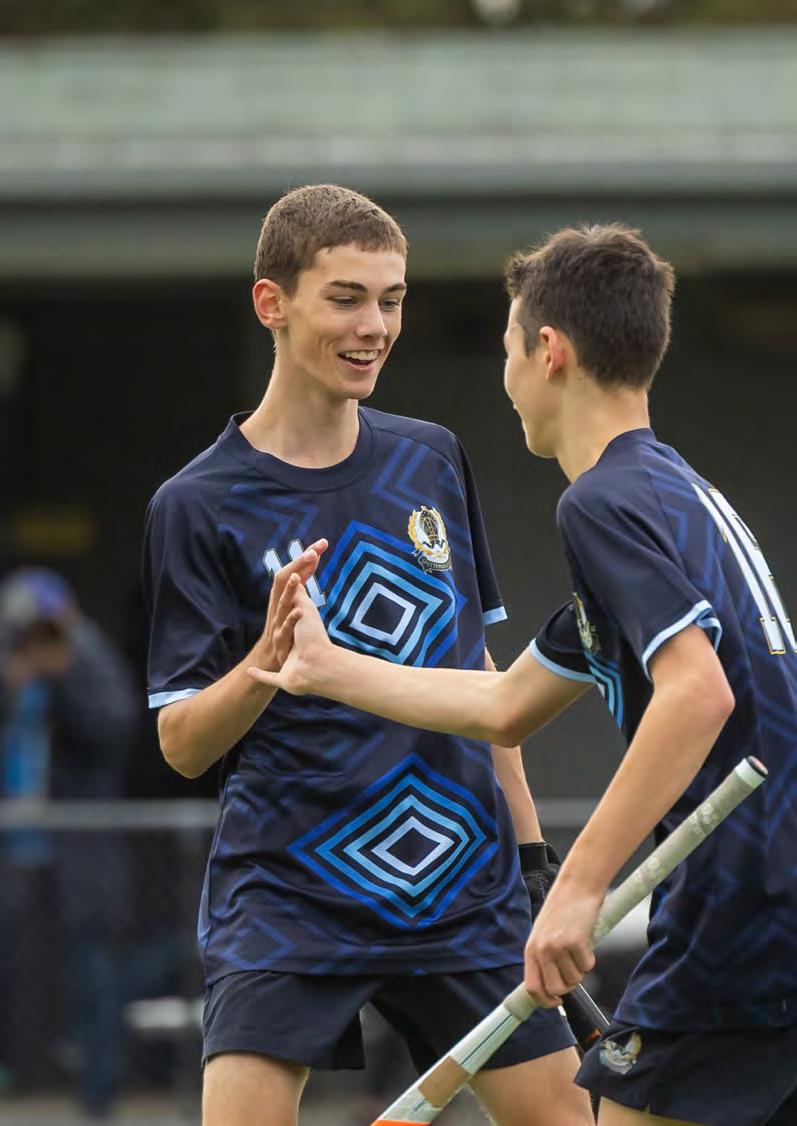








Belonging is a powerful thread that weaves through every aspect of life at Camberwell Grammar School. For boys especially, developing a strong sense of belonging is not only linked to positive wellbeing but also to resilience, confidence and engagement in learning. At our school, where we educate young men to become thoughtful, capable and compassionate people, we know that belonging is foundational to this mission.
Whenever we reach the end of a phase in our lives, it’s natural for us to look back and reflect. The Class of 2025 is approaching the end of their time at school and at Camberwell Grammar. As they do, I am meeting with them for lunch in small groups. These lunches are an opportunity to connect with the cohort as they journey through Year 12, and to seek their reflection on their time as CGS students. A consistent theme at each of these gatherings has been the sense of belonging, connection and community that each student feels being part of our school.
While wellbeing is often associated with physical health or emotional regulation – and rightly so – it is also about connection. For boys to feel safe, supported and able to take risks in their learning and relationships, they must first feel that they belong. That they are known. That they are valued.
In an all-boys environment, this sense of belonging can take many forms. It might be forged through shared achievements on the sporting field, collaboration on a design project, involvement in cadets, or the camaraderie built through a House competition or music ensemble. We see it in the way boys look out for each other, respectfully challenge one another and grow together. These relationships are not incidental; they are nurtured intentionally through the culture, structure and values of our school.
Importantly, belonging is not the same as ‘fitting in’. Fitting in suggests the need to change yourself to be accepted. Belonging, by contrast, means being valued as you are. We want every student to feel safe
to bring their whole self into our community – cultural background, interests, learning style, beliefs and all. This requires more than inclusion; it demands respect, empathy and the willingness to learn from one another. In our classrooms, we strive to nurture these qualities through open discussion, student voice initiatives and collaborative learning.
We also know that a strong sense of belonging is protective. Research from the Australian Student Wellbeing Framework shows that students who feel connected to their school are more likely to have positive mental health, be motivated learners and form healthy relationships. In an era when young men face growing pressures – from social media, academic expectations and questions about identity –school must be a place of grounded, positive connection. When students know they belong, they are better equipped to face challenges and grow with confidence. However, belonging is not the work of one person or a single policy – it is a shared responsibility, woven into the fabric of our daily interactions.
A unique aspect of our culture at Camberwell Grammar is that this sense of belonging extends beyond our current students to our alumni and parent communities, too. Our goal is for our parents, current and past, and our past students to also feel a strong sense of connectedness to our school. Being involved in our school community provides a sense of belonging to something bigger than oneself. There is the opportunity to connect and make a meaningful contribution for the benefit of others – to make a difference.
To our current families: thank you for the role you play in building this culture of belonging. You model connection, respect and kindness through your contributions to a range of activities throughout the school year, such as ‘Friends of’ groups, Open Day, Christmas Pudding Mixing, volunteering your time and sharing your expertise and energy to benefit our school. This partnership strengthens the environment we create for our boys.
‘For boys especially, developing a strong sense of belonging is not only linked to positive wellbeing but also to resilience, confidence and engagement in learning.’

Our alumni carry the values of our school into the broader world, serving as living examples of what it means to be part of a community grounded in respect and kindness. You continue to shape the culture of our school through your involvement in events such as reunions and gatherings, providing opportunities or support to our current students, being part of OCGA sporting clubs or groups, or simply by staying connected to others who are part of our broad school community. You remind us that belonging to Camberwell Grammar is not bound by time – it is lifelong.
As we look ahead to our 140th celebrations next year, it remains our mission to ensure that every student in our care, regardless of background, interests or journey, knows that he has a place here. That he is supported. That he belongs.
Mr Ben Jeacocke Principal
I just want my child to feel seen, supported and stretched. It’s what every parent hopes for in a school. At Camberwell Grammar, culture and care are not afterthoughts; they are embedded into our daily interactions, guiding how we teach, how we connect and how we support each student throughout the day. In this article, our Head of Middle School, Mr Troy Stanley, explores culture and care at Camberwell Grammar School.

Surrounded by a plethora of excellent schools, each with its unique strengths, the decision to join this community is never made lightly. Over the past 139 years, Camberwell Grammar has carved out a culture that blends tradition with innovation, high standards with heartfelt care.
Adolescence is a time of discovery. It’s a dynamic stage marked by curiosity, creativity and the search for belonging. Young people at this age move between self-assurance and uncertainty, testing boundaries, forming identity and learning how they relate to others. With the right support, their confidence grows, their strengths take shape and their capacity to connect deepens. They don’t just want to be taught; they want to be understood. They want to be challenged and supported in equal measure.
What truly sets this community apart is our shared commitment to the values that shape us — Learning, Respect, Integrity, Courage and Optimism. These values don’t just live on our walls or in our policies; they’re reflected in the daily actions, relationships and expectations that guide life at Camberwell Grammar. One way we bring these values to life is through our Values Assemblies, held each semester, where students are invited to nominate their peers for recognition. These moments celebrate character in action — students who quietly lead, support others and embody the very qualities we aim to nurture across the school.
This same culture of care and purpose also draws exceptional educators to Camberwell — people who are not only skilled professionals but deeply passionate about making a lasting difference in the lives of young people.
Together, this collective investment from staff, students and families helps shape a culture that is both principled and progressive, grounded in care and driven by purpose.
The introduction of the Berry Street Education Model (BSEM) is not a shift away from what we do — it’s an enhancement of it. It gives us a shared language and practical strategies to reinforce what already works: strong relationships, consistent expectations, and the unwavering belief that students thrive when they feel safe, supported and ready to learn.
BSEM is grounded in research and used in schools across the country, but its real power lies in how it’s brought to life in each individual school context.
At Camberwell Grammar, we’ve been exploring how these principles resonate within our unique environment. This ongoing process takes time. It requires reflection, collaboration and a willingness to adapt theory into meaningful, everyday practice.
Over the past year, BSEM has become a key focus of our professional learning. More than just a model, it mirrors what we already value in great teaching: structure, care and consistency. It gives us a shared language and practical strategies to support students, not only when they are thriving, but especially when they’re struggling to engage or regulate. Emotional wellbeing and academic growth are deeply intertwined.
This is a whole-school initiative. Every student-facing, teaching and support staff member across Junior, Middle and Senior Schools has now completed all four BSEM training modules. This shared investment means that no matter where a student is in their school journey, they’ll experience the same consistent, caring approach.
This shared foundation ensures every adult working with students applies a consistent, relational approach in classrooms, libraries, on the sports field, music studios, or during co-curricular and wellbeing programs.
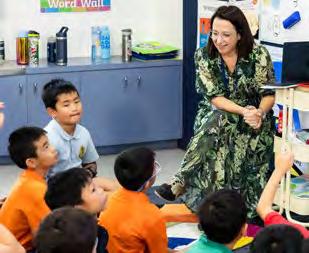
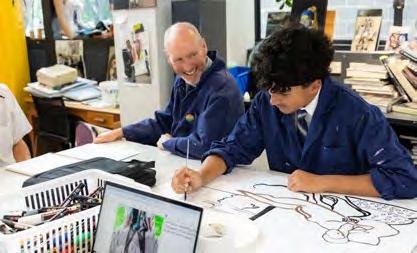
From this work, four practical focus areas have emerged. These aren’t just for teachers. They offer meaningful ways for families and staff to reinforce our shared values and support each student’s readiness to learn:
• Consistent, Predictable Routines (CPR)
• Reading the Room: Raising or Lowering the Temperature
• G oal Setting, Reflection and Gratitude
• Building Genuine Rapport
Together, these approaches help create environments where students feel safe, seen and supported – and where school and home work together to guide their growth.
As we embed this work across the Junior, Middle and Senior Schools, we’re also identifying simple, researchbacked strategies that families can try at home. These practices don’t need to be perfect, they just need to be consistent. When school and home mirror one another in language, expectations and relational cues, students benefit from a greater sense of belonging and clarity.
Here are four ways we’re putting this into action –some of which you might already be using or may wish to explore at home.
From our approach to student wellbeing, routines offer safety. They reduce stress. They create a structure that allows students to focus on learning rather than guessing what might come next.
CPR is a lifeline, especially for students navigating the complexities of adolescence. At school, this looks like predictable lesson openings, clear expectations and reliable structures. At home, it might mean regular mealtimes, screen-time boundaries or a consistent wind-down routine.
When routines are embedded, students stop secondguessing how a teacher or parent might react and start investing their energy into growth and learning. It creates a climate where things feel under control. That’s when young people take positive risks, make progress and bounce back from setbacks.
After all, we want our students to grow in confidence –to question the world, look for solutions and contribute positively to their community. That kind of engagement takes courage – and predictable routines help provide the secure footing they need to take that leap.
Teenagers won’t always tell you what’s going on—but they’ll almost always show you. — Andrew Fuller
Every space – from a classroom to a kitchen bench –has an emotional temperature. As adults, we’re slightly better equipped to read it. Our job is to notice the mood and adjust. Sometimes we need to lift the energy with humour, movement or music. Other times, we lower it with stillness, a calm tone or simply silence. These subtle shifts help create a sense of safety and model what emotional regulation sounds, looks and feels like.
Andrew Fuller, adolescent psychologist and long-time contributor to our work with students and families, reminds us that all behaviour is communication. What we see on the surface – frustration, withdrawal, defiance – is often just the tip of the iceberg. Beneath it lies a maze of interactions, emotions and self-perceptions that most young people can’t yet name. When we adjust the emotional temperature, we invite a different kind of response. Instead of asking ‘What’s wrong with you?’, we might try, ‘I can see something’s going on. Let’s take a breath and figure it out.’ This gentle shift from reacting to responding builds empathy, softens tension and strengthens connection.

And when done consistently, it builds trust. Attempts to manage behaviour through barking demands or punitive action often backfire, escalating rather than easing the moment.
At home, the same principle applies. Staying calm in the heat of conflict – and staying connected through it –models emotional maturity. We won’t always get it right, but how we repair matters more than the rupture itself. A quiet moment together, a genuine apology or simply circling back to connection sends a powerful message: relationships can bend without breaking.
This doesn’t mean that consequences go out the window (my own kids would roll their eyes at that idea). But timing matters. The most productive conversations often happen after emotions have cooled and after trust has been preserved.
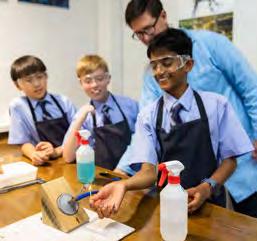

It’s often the small reflections – the micro-moments of insight – that lead to the biggest shifts in mindset and perspective.
This year, our Student Diaries have evolved into tools for wellbeing. In weekly Form and Tutor sessions, students now use them to set goals, reflect on progress and express gratitude. These practices are grounded in positive psychology and backed by research.
Importantly, goal setting isn’t a ‘set and forget’ process. Some goals are achieved quickly; others take time. And sometimes, students choose to stay with the same goal for a few weeks to build consistency. The process itself, of pausing to think, recalibrating and trying again, is what matters most.
Research also suggests that setting small, attainable goals – and celebrating progress along the way –reinforces motivation and builds confidence. That celebration might be as simple as acknowledging a moment of effort or progress, and it helps keep students engaged in the process.
Each week, students also select a wellbeing focus –like sleep, nutrition or screen time – and track small behavioural shifts. The aim isn’t perfection. It’s about building self-awareness, ownership and confidence.
We know the system is working when students begin to articulate what they’re working on, recognise what helps or hinders them and support one another in the process. Their reflections are creating a ripple effect within themselves and across the classroom.
A simple follow-up at home to ask, ‘What was your focus this week?’ or ‘What’s a small win you’ve had lately?’ shows you care and opens the door for meaningful conversation and connection.
The strength of a school community lies in a shared sense of purpose. At Camberwell Grammar, we are deliberately fostering a culture where students, staff and families speak a common language around wellbeing – one grounded in respect, consistency and compassion.
Students will go to great lengths for teachers who truly believe in them. But if they feel disrespected – even unintentionally – they may pull away, not only from the teacher but sometimes from the subject or school altogether.
At times, adolescents may give us every reason to push them away. They might test boundaries, act out or retreat into silence. It’s a challenging but crucial part of their growth and exploration. Staying calm, present and patient during these moments is key to maintaining trust and connection.
This reality highlights why one of the most transformative aspects of the Berry Street Education Model is its focus on relationships. Building rapport is not just an added extra. It’s the foundation of effective teaching and learning.
The words we choose matter deeply. Simple affirmations like ‘I believe in you’ or ‘I won’t give up on you’ communicate care while upholding high expectations. Cultivating a Zen Mindset – staying calm, grounded and present – helps us respond thoughtfully instead of reacting impulsively.
True connection happens when students feel genuinely seen, heard and valued beyond their academic achievements – through co-curricular involvement, transition support and personalised pastoral care. When this happens, they feel safe enough to be themselves and brave enough to take risks and grow.
Building this kind of rapport starts with the basics: actively listening, asking thoughtful questions and showing authentic interest. Being genuine and willing to share moments of vulnerability yourself models trust and invites students to do the same.
As Brené Brown reminds us, Connection is why we’re here; it is what gives purpose and meaning to our lives. It’s through these authentic connections that learning flourishes and young people find their courage to thrive.
Raising resilient, confident young adults is never easy. But when our efforts at school and home align – through routines, emotional awareness, reflection and genuine connection – we give students something truly powerful: the readiness and resilience to learn, grow and thrive.
Mr Troy Stanley Head of Middle School


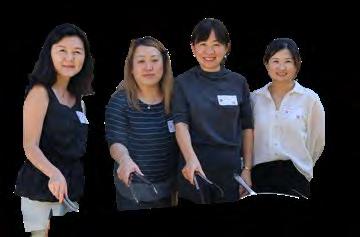
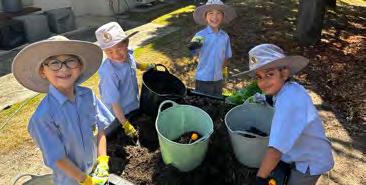
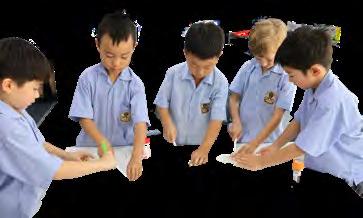
The Kitchen Garden Program at Camberwell Grammar brings together all the best elements of nature, science, problem-solving, mathematics, cooking, and a whole host of other life and learning skills. It has been a pleasure to work with students who are so excited and engaged with the sustainable practices of caring for the soil, planting and growing crops, harvesting, preparing and then sharing food from our garden. The program has been well supported by a community of parents, teachers and students who have all contributed to its success.
Camberwell Grammar signed up to the Stephanie Alexander Kitchen Garden Program in late 2024 as a way to provide students with opportunities to be involved in the hands-on aspects of growing, cooking and problem-solving. Year 1 has embraced the Stephanie Alexander philosophy of ‘pleasurable food education,’ where joy in cooking and gardening nurtures creativity, confidence and community. By connecting children to nature and sustainable practices, the program cultivates environmental awareness and wellbeing. Think of it as a combination of the Japanese philosophy of forest therapy and a practical education in biological sciences.
Each week, students worked in small groups, with parent or teacher helpers, on different tasks that contributed to the nurturing of healthy soil, growing and caring for crops, and finally harvesting and preparing a meal to share together. Starting from the ground up, we restored garden beds neglected over the summer holidays with compost enriched with worms, castings and ‘worm wee’ from our worm farm, learning about aspects of permaculture and sustainability. Identifying compost minibeasts that work together in a worm farm habitat to help break down food scraps was a highlight, as children looked closely to identify worms and other insects under the microscope. The rich soil from the worm farm and our school food scraps contributed to healthy soil and a good start for plants, whilst providing a perfect opportunity to embed principles of a circular economy.
Corn was our staple crop, and we soon learned about plant biology, drawing parts of the plant, including the roots, stalk, cob, kernels, silk and tassels, as well as understanding
the life cycle of the corn plant. Watching healthy corn plants grow to over a metre tall was deeply rewarding. Gardeners are problem-solvers, and when the corn was nearly ready to harvest, the Kitchen Garden community sourced socks to cover and protect our precious corn cobs so that animals did not eat them before we did. The Pokémon-themed socks covering the corn husks were a surprising yet helpful sight in our garden, and they worked perfectly in saving our corn from opportunistic animals.
Harvesting the corn we had grown was an exciting and rewarding process. The boys learned to look for silks that had turned brown to indicate when the corn was ready for picking. ‘Pass the Parcel’ was an exciting way to peel back layers of the corn husk to reveal the fresh corn beneath. The excitement was palpable when the juicy yellow corn kernels were revealed!
We then collected a selection of herbs from our garden and challenged the boys to smell, taste, touch and match the names of various garden herbs, such as rosemary, lemongrass, coriander and mint. Students were taught safe knife skills, including ‘The Bridge,’ ‘Bear Claw’ and ‘Rock and Chop,’ to help cut herbs and prepare ingredients. Sharing a meal that our Kitchen Garden community had grown together was a satisfying conclusion to the term. Working with the Kitchen Garden team has been such a pleasure. The boys have shown interest and enthusiasm in the garden, sustainable practices and growing their own food.
Mr Tristen Haines
Year 1 Teacher and Sustainability Team Member


Senior School Musical
The opening scene of Andrew Stocker’s spirited reimagining of Gilbert and Sullivan’s The Pirates of Penzance instantly transports the audience, not to the fantasy 19th-century England of the original, as one might expect, but to an equally fantastical coastal setting with echoes of Australia. Mark Wager’s towering native trees frame an idyllic beach, complete with a Hills Hoist, beach hut and the unmistakable hum of summer by the sea. Jennifer Bennie’s extensive range of costumes celebrated the 1970s, capturing the era’s fashion, hairstyles and ephemera.
The overture showcases the vocal strength of the full ensemble as the merry band of pirates celebrates the coming of age of their double-denim-clad apprentice, Frederick (Lachlan Millard ). His nursemaid, the wellmeaning but misguided Ruth (Isuli Perera), mistakenly bound him to the pirates as a child. Despite her insistence that “you might do worse”, Frederick is determined to renounce piracy once his apprenticeship ends. He vows to eradicate the criminality of his former comrades, but the defiant Pirate King, played with swagger by Charlie Weickhardt, is unwavering in his stance: “For I shall live and die a pirate king.” Aiden Tsui, as Samuel, the Pirate King’s loyal lieutenant, brings an eager and earnest presence. A striking stage moment sees the pirates form the shape of a galleon at sea, complete with a waving skull and crossbones.
Frederick, having been led to believe that Ruth was a beautiful woman in her prime, is shocked upon meeting a group of young maidens and realising the extent of her deception. His furious dismissal of Ruth (Oh, False One! ) precedes the entrance of the demure wards, dressed in sunhats and carrying shrimping nets, singing a lively rendition of Climbing Over Rocky Mountains. Their vocal talent is evident, with standout performances by Carisse Siaw (Edith), Evangeline Vamvakaris (Kate) and Olive Chesney (Isabel). Miranda McDonald’s choreography evokes the stylised glamour of 1970s musical theatre, creating delightful visual patterns and kinetic energy.
The wards’ coquettish playfulness is interrupted by Frederick’s sudden appearance. Though startled by his pirate status, they are quickly charmed by his presence. Standing centre stage on a rocky outcrop, he delivers Is There Not One Maiden Breast? just as Mabel (Sophia Zeitoune) enters, captivating both Frederick and the audience with a beautiful rendition of Poor Wand’ring One
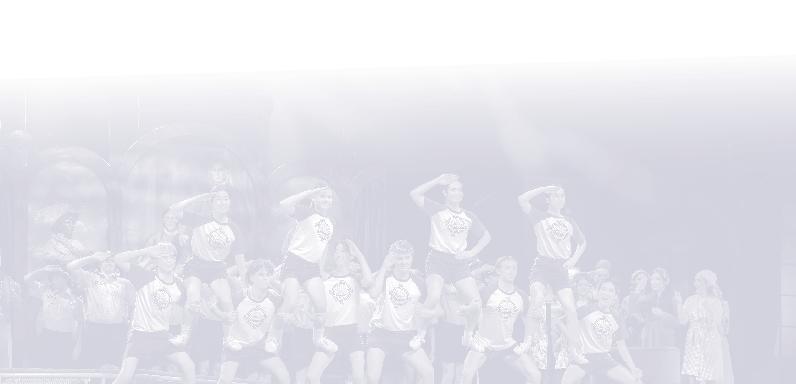


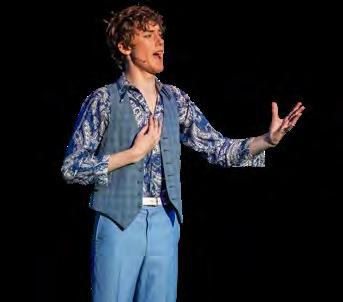

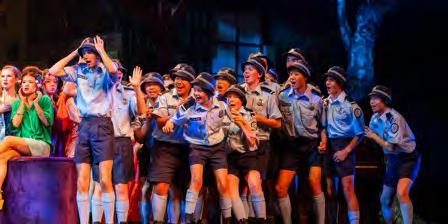
The ensemble captures the comic tension and romantic confusion with clever staging and dynamic movement. The juxtaposition of the girls’ nervous energy and Frederick’s boldness is directed with finesse.
Chaos ensues as the pirates return to claim the wards as their brides, invoking the help of a conveniently located minister of dubious legitimacy; humorously introduced with a surfboard and earring. Enter Major General Stanley (Lachlan Barnes), delivering the show-stopping I Am the Very Model of a Modern Major General with remarkable control and comic timing. Dressed in proper Victorian attire, Barnes commands the stage while the chorus responds with lively, synchronised energy. The general’s claim to orphan status provokes an emotional reaction from the pirates, culminating in a rich performance of Hail, Poetry, which showcases the ensemble’s harmony and vocal range. Act One concludes with a moving moment of reconciliation.
Act Two opens on the remorseful Major General, surrounded by his daughters and tormented by guilt over his deception. The scene shifts to the hilariously inept local police force, whose uniforms and mannerisms evoke beloved 1970s Australian comedies. Their entrance is a spectacle; complete with a drum line parade, gym squad display team, mini-trampolines, acrobatics and circus antics, which provided yet more options for student involvement in the show. Jade Bishop shines as the hapless police chief, blending physical comedy with vocal finesse during Tarantara
At the Queen Victoria pub, an homage to classic Australian watering holes and a cheeky nod to Priscilla, Queen of the Desert, Frederick learns from the Pirate King that he is technically still a pirate, having been born on a
year. Bound by duty until his 21st birthday, Frederick reluctantly recommits to piracy. Upon hearing of the Major General’s lie, he reveals the truth to his fellow pirates, sparking their rage in the vengeful number The Traitor Dies Tonight. Mabel promises to wait for him until ‘1940’ (this interpretation presenting a fantasy world inspired by the 1970s, not actually set there), her soaring vocals blending beautifully with his.
The police return, still jittery but emboldened by Mabel’s resolve. Their musical number, A Policeman’s Lot Is Not a Happy One, is delivered with humour and pathos as they take their farewell photos. The final confrontation unfolds in the Major General’s pool room, now invaded by pirates, with police hiding behind paintings and under furniture in a scene of perfectly choreographed chaos. The knife-juggling Pirate King makes a final stand before the ultimate revelation: the pirates are in fact noblemen (noble-men) who have ‘gone wrong’. Peace is restored, Frederick is freed and is joyfully reunited with Mabel.
The production concludes with a triumphant reprise of I Am the Very Model of a Modern Major General, bringing the evening to an exuberant close.
This bold recontextualisation is a joyous collision of a classic operetta and 1970s Australiana within which incongruities are entertained. With Ben Bishop’s strong musical direction, Andrew Stocker’s inventive staging, practised stagehands and a sharp comedic sensibility, it honours the original while boldly carving out its own identity. A delightful reinterpretation that had the audience humming the tunes long after the curtain fell.
Mr Jason Hall
French Teacher

Parenting is one of life’s greatest rewards – and challenges. From managing early primary milestones to guiding adolescents through teenage complexities, the questions evolve and so must the conversations. With technology advancing rapidly, the world our children inhabit is vastly different from the one we knew.
For 13 years, Camberwell Grammar School and Camberwell Girls Grammar School have collaborated to offer the Parent Education Series, thoughtfully designed to support families through the challenges that arise at every stage of the school journey. The series provides a space for parents to learn from trusted experts, share insights and connect with others navigating similar experiences.
The long-standing collaboration between CGS and CGGS began because many families have children at both schools. The initiative aimed to create a seamless approach to parent education across both communities. The seminars are tailored to the unique needs of both schools and shaped by the interests and questions of families, as well as current community conversations. Hosting duties alternate and promotional materials are adapted to suit each school’s voice and branding. The approach is collaborative, with a shared goal: supporting families through every stage of a child’s school journey.
In line with the theme of this issue of Spectemur, Wellbeing: Ways to Belong, the Parent Education Series fosters connection by providing a space for families to learn together, share experiences and hear from trusted experts. It’s intentionally designed with a mix of topics to support families from Pre-Prep through to Year 12.
Each year, staff review potential speakers and topics, drawing on presentations they’ve attended, family recommendations and current issues affecting students and parents. Some speakers also work directly with the schools, embedding their content into the curriculum. The aim is to balance offerings across Junior, Middle and Senior School, ensuring all parents feel welcomed and supported. Even when content is designed for specific year levels, all families are welcome.
Presented by Paul Dillon (DARTA).
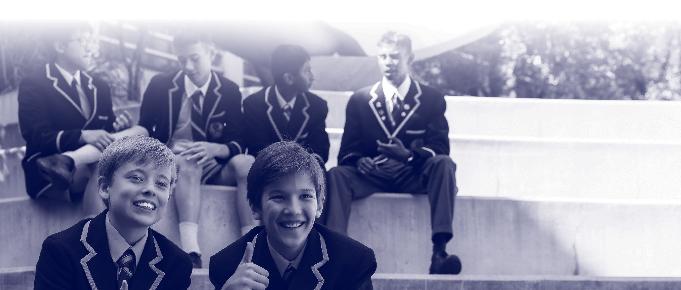
This session offered data-driven insights into the role alcohol and drugs play in adolescent social lives and how to help teenagers stay safe. Paul offered practical strategies to help parents reduce risk and build trust. A regular guest, his key messages often stay with students long after his sessions. darta.net.au

Presented by Trent Ray
With 17 years of experience in education and cyber safety, Trent offered practical tips for families on how to support safe and responsible online habits. He covered topics like popular apps and platforms, generative AI, privacy settings and cyberbullying, reassuring parents that it’s never too early – or too late – to have meaningful conversations about online safety and boundaries. The eSafety Commissioner site was highlighted as a valuable resource, also linked via DEEDS. cybersafetyproject.com
Presented by Butterfly
This session focused on supporting body confidence and fostering healthy relationships with food and exercise. It encouraged families to adopt a ‘BodyKind’ approach, emphasising that the best exercise is one that’s fun and reinforced the role of early intervention in nurturing a healthy body image.
butterfly.org.au
Presented by Dr Charlotte Forwood
A teacher and speech pathologist at Camberwell Girls Grammar, Charlotte spoke about nurturing curiosity, creativity and a love of learning. Her session inspired families to value play, unstructured time and meaningful conversations, highlighting the role of oral language and open questioning in a child’s development.
Presented by Dr Billy Garvey (Guiding Growing Minds)
A developmental paediatrician, podcaster (Pop Culture Parenting) and father, Billy offered an engaging, relatable look at common parenting concerns. With humour and evidence-based advice, he encouraged families to parent with more confidence, less guilt and a deeper understanding of the middle years. guidinggrowingminds.com
As our children grow and develop, so do we. Parenting is often about feeling our way and doing our best as we learn alongside them. The juggle is constant – balancing
our love and desire to protect with the need to support our children’s independence and self-expression. Showing unconditional love helps them navigate the ups and downs of friendships, learning and life.
Children learn through experiences with others and by solving problems as they try new things. Things may not always go to plan, but they learn so much through trying, collaborating and giving things a go. We must encourage them to explore their passions and have fun, while also helping them cultivate the skills to be quiet, restful and reflective. At every age, sleep remains critical to their development.
Ongoing conversations are vital at every stage. When children are younger, we are more hands-on. As they move through Middle School, our role shifts – we take a step back but remain ready in the wings. This continues into the Senior School years. These conversations may be brief or deep, and often happen spontaneously: in the car, at bedtime or over a cup of Milo. Our students need to know they can tell their parents anything and be supported, even when it’s challenging.
We encourage our children to ask for help when they’re unsure; we, too, should model this behaviour. It’s okay to seek guidance from teachers, professionals or those you trust. At Camberwell Grammar, we’re here to work with you to help your children navigate school life. Alongside the Parent Education Series, we regularly share literature, websites and resources to support you and your family.
We understand there’s no one-size-fits-all approach to parenting. What works for one child may not work for another, even in the same household. You know your children best. Trust your instincts and take what’s useful, adopting strategies that resonate with your values and family life.
The Parent Education Series is more than a one-off presentation – it’s about building long-term connections between families and the school community. Through the program, we aim to give families the confidence and understanding to stay connected and engaged throughout their children’s school journey.
We also host speakers at community events, such as breakfasts and dinners, so keep an eye out for these. If there are particular topics or speakers you’d like to see featured, we welcome your suggestions. Please email efg@cgs.vic.edu.au
Mrs Emma McMillan, Marketing and Communications Coordinator and Ms Elizabeth Grant, Head of Counselling
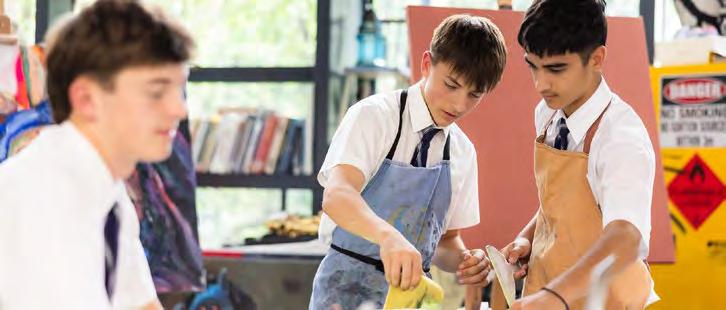
Twelve months ago, I decided to move into all-boys education. After spending my entire career in co-educational settings, I had begun to notice a shift in the conversation around young men and their behaviour. As a teacher, educational leader and mother, I have always believed in the goodness and potential of the young men I work with, and continue to be surrounded by.
This belief prompted me to reflect on my role in supporting, shaping and celebrating boys and young men in a way that contributes to a more balanced narrative. I wanted to be part of a space where we uplift our boys, where we acknowledge their challenges without diminishing their strengths, and where we equip them to grow into thoughtful, kind and capable men.
In my role, my main consideration is how we teach our wonderful men of tomorrow with an eye on how we support them so that they may make a positive difference in our future. I am spending time developing a deep understanding of ‘What do our boys need from their peers, their teachers and the community to demonstrate excellence?’
Within the literature of excellence in boys’ education, three strong themes emerge: intentional education of character, relational connection and a community that believes in them. Providing boys with clear guidance and high expectations, while supporting them every step of the way, is a strong indicator of developing successful young men. These themes and skills are something that we develop in our teachers to provide an environment that has been meaningfully cultivated for our young men.
The explicit education of character is strongly supported by evidence and plays a critical role in shaping a school culture that supports the formation of young men who will positively influence the world around them. The International Boys’ Schools Coalition emphasises that character should not be confined to isolated lessons but embedded in the daily life of the school, through curriculum, co-curricular involvement and meaningful relationships.
By recognising character as something that can be taught and practised, rather than an innate personality trait, schools can take a deliberate and consistent approach. This includes modelling expected behaviours, setting high standards and engaging in ongoing reflection and dialogue. Such an approach strengthens student engagement, deepens relational trust and equips boys with the social and emotional competencies needed to navigate life beyond the classroom.
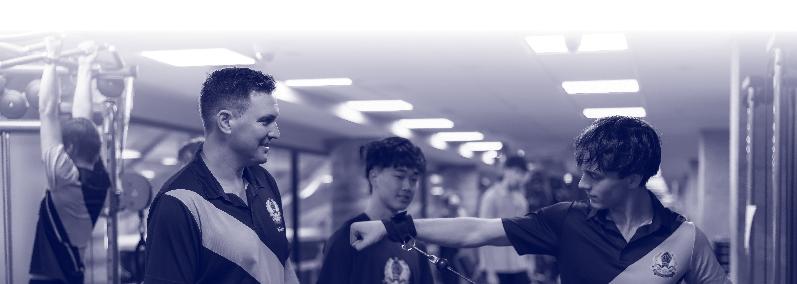
Ultimately, a culture of intentional character education contributes significantly to educational excellence, not just through academic achievement, but by developing capable and compassionate young men.
‘When we believe in their potential, communicate that belief consistently and provide unconditional support, boys are more likely to rise to the challenge’.
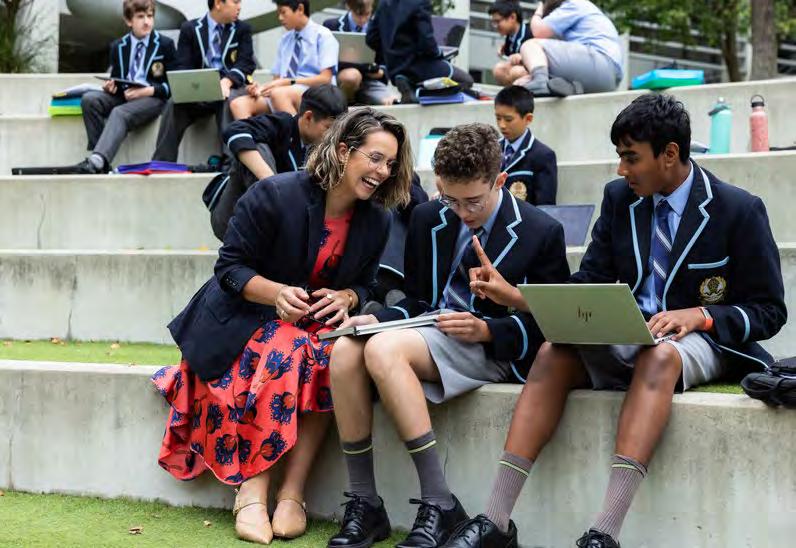
A relational connection is a key indicator of both student success and meaningful contributions to the school community. The research is clear: all young people benefit from relational teaching, but it is particularly critical for boys. In the paper For Whom the Boy Toils, the transformative power of teacher-student relationships is emphasised:
The pervasive theme that ran through the narratives of positive relationships was that they are transformative; as a consequence of the relationship, behaviour changed and scholastic improvement followed, often drastically.
This highlights that positive, sustained relationships provide the foundation through which effective teaching can occur.
There are many ways staff build and maintain these relationships in schools. At our school, Berry Street training has served as a valuable catalyst for conversation and the sharing of practices that strengthen our relational approach. By investing in relationships, we create the conditions for boys to thrive academically, socially and emotionally.
The final piece of evidence I want to highlight is the vital importance of surrounding young men with a community that genuinely believes in them. This need is even more pressing in today’s world, where the narrative around masculinity can often be negative or conflicted.
Our boys need champions, adults who lift them up through a culture of high expectations and high support.
In terms of classroom excellence, Hattie’s meta-analysis reinforces that students tend to perform in line with their teachers’ expectations, whether those expectations are high or low. This underscores the collective responsibility we share as educators to set positive, ambitious expectations for our students. When we believe in their potential, communicate that belief consistently and provide unconditional support, boys are more likely to rise to the challenge and demonstrate true holistic excellence, academically, socially and emotionally.
In shaping young men of character, we must remain intentional in every aspect of their education with a strong vision of who we want graduating Camberwell Grammar School. Excellence in boys’ education is not achieved through academics alone, but through the deliberate cultivation of a culture where character is taught, relationships are prioritised and every boy is surrounded by people who believe in him. When we embed these values across school life, we empower our boys not only to succeed but to thrive and go on to lead lives of purpose and impact.
Ms Victoria
Triantafyllou
Head of the Murdoch Centre for Teaching, Pedagogy and Innovation

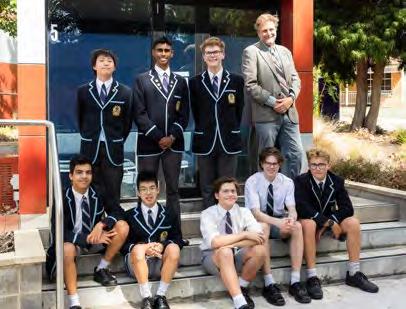
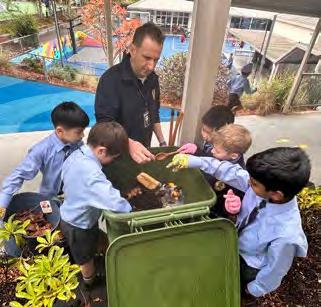
At Camberwell Grammar School, belonging is about more than just fitting in. It’s about finding shared purpose, taking meaningful action and being part of something bigger than ourselves. This term, Towards 2050 has embodied belonging through community connection, purposeful action and a shared vision for a greener, healthier future.
One of the most powerful ways to foster wellbeing is through connection with each other and with the environment. Our students recently joined forces with Camberwell Girls Grammar School for the Clean Up Australia Schools Day, walking and working side by side along the Anniversary Trail. This collaborative event not only helped remove rubbish from a shared community space but also deepened inter-school bonds, reinforcing the idea that environmental action is more impactful –and rewarding – when done together.
Another strong example of belonging through collaboration is the Fix the Future student podcast. This initiative brings together students across year levels to discuss sustainability, climate issues and positive solutions to the problems we face around the world. Through their broadcasts of positive action, these students aim to encourage others to become agents of change in the world.
This sense of collective achievement was also evident when Camberwell Grammar School was named a Finalist in the Sustainability Victoria 2025 Campus Infrastructure and Operations School of the Year. This recognition belongs to every student, staff member and parent who has played a role in building a more sustainable school community.
Taking action can be a powerful way to feel connected, purposeful and capable – and our students are leading the way.
The Waste and Energy Audits continue to be an important tool for student learning and action. Whether it’s Year 5 students learning about kilowatt-hours and light levels or Senior School students analysing consumption trends, these audits aren’t just data-gathering exercises –they’re real-life experiences where students see the difference their efforts can make.
Meanwhile, the Gardening, Green Ninja and Beekeeping groups have continued to thrive, creating hands-on, outdoor opportunities for students to nurture, grow and connect with nature. For many students, this practical, low-pressure space is a vital source of calm, focus and belonging.



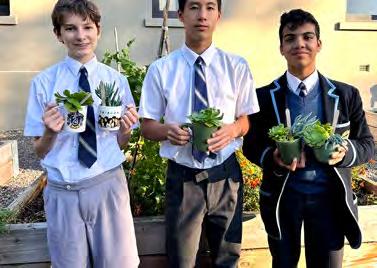
Responsible consumption isn’t just about reducing waste – it’s about making choices that reflect care, thoughtfulness and a shared responsibility. It’s where values meet behaviour and where students can see their ethics in action.
The school’s printing reduction initiative continues to challenge staff and students to think before they print, while the CGS cafeteria’s reduction of single-use items supports everyday habits that are healthier for the planet.
Perhaps the standout achievement in this space is the student-led hand dryer project. This project saw the successful installation of energy-efficient hand dryers in 26 school bathrooms to replace paper towels. This project was conceived, researched and driven by our students, highlighting their leadership and ability to create change in their school.


All of these efforts – from waste audits to podcasts, hand dryers to community clean-ups – contribute to our bold and unifying target: Net Zero Emissions by 2030.
This target is not just about buildings and data – it’s about people. It gives every student, staff member and family a clear role in building a better future. Whether you’re switching off lights, catching public transport, participating in events or advocating for change, you are part of a school-wide movement.
Towards 2050 is more than a sustainability initiative – it’s a place to belong. Through shared action, real outcomes and a collective mission, students are discovering how their wellbeing is deeply connected to the wellbeing of others and the planet.
Ms Jo Menzies Sustainability Project Coordinator

Meet Ms Emma McCowan
Head of Robinson House | Art Teacher

You’ve been Head of Robinson House for two terms now. What have you enjoyed most about the experience so far?
What I’ve enjoyed most about being Head of Robinson House is getting to know the boys — their personalities, ambitions and the challenges they face. It’s a real privilege to support and encourage them as they grow. Building those relationships is what makes the role so meaningful and rewarding for me.
What helps create a strong sense of connection and belonging in a House group?
A strong sense of connection and belonging in a House group grows from spending quality time together and having inspiring leadership. In Robinson, we’re incredibly fortunate to have Kensei as our Captain and Cameron as Vice Captain, supported by a dedicated team of House Prefects. Their passion and enthusiasm truly bring the House to life and inspire everyone to get involved and be their best.
What’s something you’ve learned or been inspired by in your time at Camberwell?
I have been really inspired by the incredible kindness and support shown by my colleagues at Camberwell. From the moment I arrived, the strong sense of community and genuine care among the staff stood out to me. The spirit of collaboration and warmth makes Camberwell such a special place to be every day.
How do creativity and the arts help students express who they are?
Art is a personal and powerful way to explore ideas, emotions and identity. Creativity encourages critical thinking and invites students to look beyond what is familiar or known. Through the arts, students have the freedom to express who they are, imagine who they want to become and make sense of the world around them with curiosity and confidence.
Outside the classroom, what are your interests – and how do they support your wellbeing?
Outside the classroom, I find balance and inspiration in everyday moments. My mornings begin with walking my dog as the sun comes up, followed by a coffee and chat with my partner to set a positive tone for the day. I find gardening a great creative outlet that keeps me connected to the world around me. Most of all, time spent with the people I love is essential to my wellbeing, reminding me of the value of connection.
Mathematics and Science Teacher | Year 7 Form Teacher

What made you decide to become a teacher?
Together with my local church, I had the opportunity to visit the Indigenous Australian community in Elcho Island, about an hour and a half from Darwin. While I was there, I met many teenagers who were keen and thirsty for education. It was a moving experience that gave me a deeper understanding of connection, culture and community. Around the same time, we also visited a Youth Justice Centre in Melbourne. Hearing the stories of the young people there made a lasting impact on me. It was clear that, for many of them, education had played a significant, sometimes life-changing role. That experience stayed with me. It made me realise that I wanted to do more than teach content, I wanted to touch the hearts of those in my classroom. That’s when my journey to become a teacher truly began.
How do you foster a sense of belonging and wellbeing within your Year 7 Form group?
I try to make sure every student feels seen, heard and safe each day. We begin with calm and predictable routines: checking in, sharing stories, celebrating little wins, saying a prayer to start the day, or simply greeting each other by name. These moments help us start the day connected and grounded, creating a rhythm that students can rely on.
I pay attention to the little things: who’s had a rough morning, who might need encouragement, who hasn’t been themselves. We also use movement breaks and short mindfulness strategies to reset when needed. Our Form group is built on mutual respect and care. We support each other through challenges, we laugh together and we make room for everyone to feel like they belong. It’s important to me that students know this is their space too.
What do you hope students remember about being in your Maths or Science classes?
I hope they remember that they felt safe to have a go, even when something was hard. That their effort was noticed, and perfection was never the goal. I want them to recall how good it felt to wrestle with something tricky and come out the other side knowing they could do it. In class, we practise persistence, take regular movement breaks to help our brains reset, and create space for questions without judgment. I hope they remember laughing, working together, helping each other out and leaving class a little more confident than when they walked in. Most of all, I hope they knew I believed in them, even on the days they didn’t believe in themselves yet.
Can you share something you do outside of school to support your own wellbeing?
I have two little boys (5½ and 2½), so most of my time outside of school is spent chasing them around parks, drawing together or exploring new cafes as a family. It’s a kind of busy that fills my cup—watching them play, laugh and discover the world helps me slow down and stay present. On Sundays, we spend time together at church, which helps us start the week with calm and connection. I also love journaling with a fountain pen. It’s a quiet, mindful way to reflect and recharge. These simple rituals keep me grounded and remind me to notice the small, joyful moments in everyday life.
What advice would you give to students trying to find their place in a new school community?
Give it time and be kind to yourself. You don’t need to have it all figured out straight away. Try to say yes to little things: lunchtime clubs, conversations, helping someone out, because those small steps often lead to meaningful friendships. Notice who makes you feel safe, calm or just good to be around, and spend more time with them. If things ever feel overwhelming, take a moment to breathe or step back; it’s okay to pause and reset. And don’t be afraid to ask for help, teachers are here to support you, not just teach lessons. Finding your place doesn’t happen all at once, but it will happen and there’s space for you here.
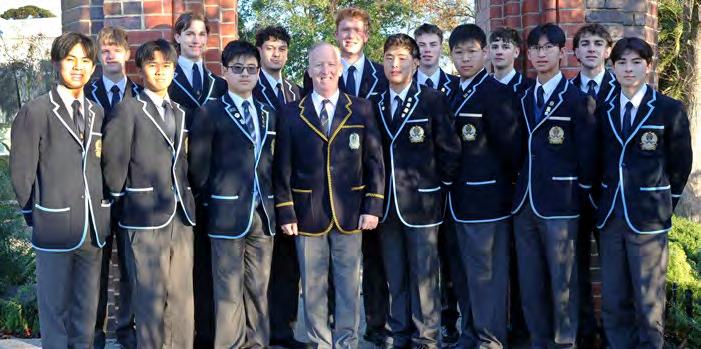
Outgoing Head of Macneil House
Hamish Green has dedicated much of his professional and personal life to Camberwell Grammar School, where his service has reflected a profound commitment to education, leadership and community. A student at the School from 1976 to 1979, he was a member of Robinson House, played hockey and developed early leadership skills through the Australian Army Cadets, becoming Senior Cadet Under Officer and co-dux of the Cadet Under Officers Course in 1978.
In 1994, Hamish returned to Camberwell Grammar as a teacher of Indonesian, bringing with him extensive experience in export marketing and international commerce, including roles with Dorf Industries and Alcoa Australia. Holding a Master of Arts in Australia-Asia trading relations from Monash University and a Master of Education (Leadership and Management) from RMIT, he led numerous study tours to Indonesia and Malaysia, and took part in a teacher exchange through the Asian Education Foundation in the early 2000s. He later expanded his teaching to include English as an Additional Language and Commerce.
Hamish served as Head of Macneil House for 25 years, a pivotal pastoral leadership role. During this time, he supported the welfare and development of hundreds of students from Years 9 to 12. He led a team of House Tutors, implemented pastoral curriculum in Years 9 and 10 (PSD) and Year 11 (RVE), and promoted values such as dignity, respect
and community participation. His guiding philosophy – that how one participates is more important than where one finishes – shaped the culture of Macneil House.
A major influence on the School’s Army Cadet Unit, Hamish served as Officer Commanding from 1999 to 2008. He then held senior roles within the Battalion and Brigade structure of the Australian Army Cadets until 2020, overseeing programs for thousands of cadets and hundreds of staff across Victoria. Since formally stepping back, he has continued to serve as the School’s Cadet adviser and leads the reading of the CGS fallen during the ANZAC Day assembly.
Parallel to his teaching career, Hamish has served in the Royal Australian Navy since 1986. Now a Commander, he is part of the Directing Staff at the Australian War College’s Command and Staff Course. His naval contributions include operations such as emergency disaster relief in 2019.
Outside school, Hamish was an active Scout and Venturer Leader for seven years and, since 2019, has volunteered nearly 400 hours with the Australian Red Cross Emergency Services Incident Management Team. At Camberwell, he introduced fencing, coached badminton and has been the assistant coach of Taekwondo since 2016.
As he steps down from his Head of House role, Hamish Green continues to teach full-time at Camberwell Grammar School, leaving behind a legacy marked by decades of dedication, integrity and service.
Mr Michael E Daniel EAL Coordinator | Latin Teacher | Summons Tutor

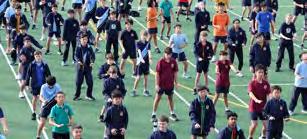
Year 7 students experienced a proactive wellbeing day focused on mental health, social media awareness, fitness and fun. The day featured a mix of activities, including stress management with Headspace, The Flip Side theatre forum with Brainstorm Productions, mobility, gym and sport sessions, co-curricular taster sessions and finally, Tai Chi and Taekwondo on the oval. Each session encouraged students to reflect, recharge and build lifelong wellbeing habits.
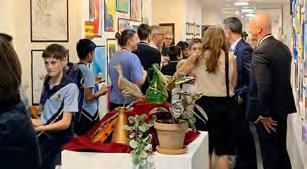

The opening night for Entrée 25 was a wonderful celebration of our young CGS artists. This year’s showcase invited Year 7 students to share a glimpse of themselves through their artwork.
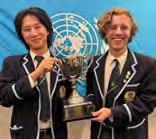
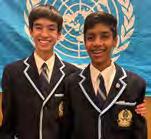
Congratulations to all those students who participated in the Senior and Junior Divisions of the Gladwyn Cup. In this highly anticipated competition, students adopt the roles of delegates from various countries and engage in vigorous debate over resolutions on pressing international matters.
Year 12 students Alex Zhang and Lachlan Courmadias won the Senior Division representing China. Year 10 students Alexander Robb and Jayan Rajakumar won the Junior Division, also representing China. It was fantastic to welcome back a group of past students, who served as adjudicators.



The Camberwell Grammar creative community celebrated the first-ever student response to the Jos Xipell Collection in the visual arts. Year 8 student work was created individually and collectively, then exhibited in Dorset alongside the original work. Congratulations to all students on creating such beautiful work.
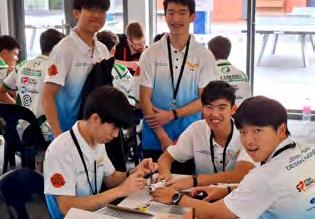
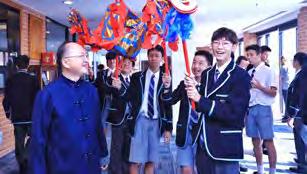
We were honoured to recently host a celebration for UN International Chinese Language Day, themed ‘Chinese: A Gift Across Time and Space.’ This event was co-organised with the Chinese Consulate-General in Melbourne and the Chinese Language Teachers’ Association of Victoria (CLTAV). CGS welcomed over 300 students and teachers from 23 schools across Melbourne for a day of cultural exchange and language appreciation. Congratulations to our Reading Competition participants, Ashton Bedoya and Charlie Malic (both Year 9) and Year 8 students Akein Seekkuge and Connor Chris

A huge congratulations to Leo Buckle (Year 12) who has been selected to represent Australia at the International Earth Science Olympiad in Jining, China later this year.
Leo recently attended the official Australian Olympiad Teams Announcement at Parliament House, where national teams were unveiled and special guests included Australia’s Chief Scientist, Professor Tony Haymet, and Senator the Hon Tim Ayres, Minister for Industry, Innovation and Science. We wish Leo the best as he prepares to compete on the world stage.
Camberwell Grammar’s STEM Racing (formerly known as F1 in Schools) Team Excelsis recently competed in the National Finals, joining 30 of the top teams from across Australia and New Zealand. The competition challenges students to design and manufacture a miniature F1 car powered by a CO₂ cartridge. Alongside the engineering component, teams must also demonstrate strong skills in project management, marketing, innovation and presentation. Year 11 students Jasper Chao, Joshua Lian, Jerry Tang, Julian Nguyen and Milton Leung competed at a high level and should be proud of their achievements in such a short timeframe.
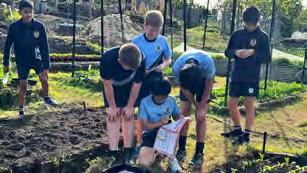
To coincide with World Environment Day, our Year 6 students took part in an engaging and educational Sustainability Week designed to deepen their understanding of environmental issues. Highlights included a walk through nature at the 1000 Steps in Mt Dandenong, a visit to CERES to explore sustainable farming practices and an inspiring presentation from Sea Shepherd. Students also enjoyed a sustainabilitythemed film at IMAX, an informative walk through the Royal Botanic Gardens and wrapped up the week with a sustainability debate.
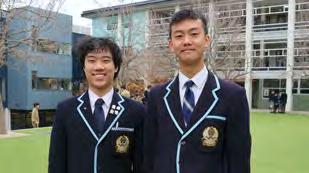
Kevin Ch’ng (Year 11) and Ethan Tran (Year 12) participated in the Plain English Speaking Award State Heat in May. Students delivered a 5-6 minute prepared speech on a topic of their choice, as well as a 3-minute impromptu speech. Ethan spoke about the power of vulnerability as a means of combating toxic masculinity, while Kevin spoke about the need for his generation to call out hate speech. Kevin won his State Heat and progressed to the semi-final. Congratulations to both students!

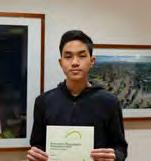
The theme of this year’s competition was Hidden Boroondara and hundreds of entries were received. Congratulations to current student Bach Tran (Year 12), whose photograph Admire the View was awarded Highly Commended in the Young Photographers category. Past student Jason Li (2024) was awarded Second Prize in the same category for his photograph, All Souls Chapel Star Trails. All photographs entered are added to the Boroondara Heritage Collection, a valuable resource for Boroondara family and local history researchers.
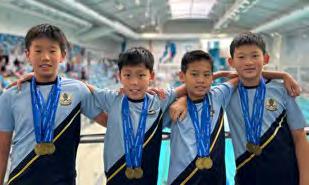
Congratulations to our Year 6 swimmers Josh Ko, Tony Lu, Evan Wang and Scott Yao who represented Camberwell Grammar at the 2025 School Sport Victoria State Swimming Championships at MSAC. Competing at the highest level of school sport, the boys delivered outstanding performances, smashing personal bests and taking home gold in the Open Medley Relay, the 12/13 Years Freestyle Relay and Josh in the 12/13 Years Backstroke.
Year 7 students recently took part in a powerful session with The Man Cave. The day featured games, open conversations, and included opportunities for students to share how they were feeling and recognise acts of kindness and support among peers. Here’s what some of our students had to say:
A check-in is where you say how you’re going, which can take rocks (challenges or emotions) out of your glass jar.
The games helped me open up more and I’ll probably start doing more shoutouts because of Man Cave.
Man Cave brought our class together. It made it easier to open up and really helped our emotional intelligence.

Students from Fintona Girls’ School recently joined our students for several dynamic sessions of collaboration, innovation and critical thinking. This has been a great way to spark creativity and strengthen connections with a local girls school. We look forward to seeing the business concepts they develop by the end of the program.
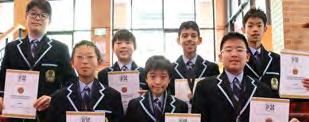
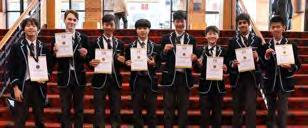
Four teams from Years 7-10 represented Camberwell Grammar with pride, determination and enthusiasm at the State da Vinci Decathlon. They demonstrated exceptional teamwork as they tackled challenges across 10 disciplines including engineering, mathematics, codebreaking, art and poetry, and science.
Highlights included a 3rd place overall for Year 7 and 2nd place overall for Year 9, along with several top-three finishes across individual categories. Congratulations to all students involved!

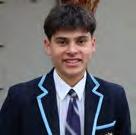
Dylan Hodges (Year 11) was victorious in the finals of the Four Way Speaking Competition, an inter-school public-speaking event open to Year 10 and 11 students from the local area. Dylan delivered a superb performance on the topic of ‘Toxic Masculinity in our community and its devastating effects.’ His compelling presentation earned him first prize, a $300 Dymocks gift voucher and a $3,000 donation to the school’s Rotary Club. Congratulations Dylan!

Early in Term 2, a group of Year 10 students took part in the Senior Ethics Olympiad. This competition challenged them to engage in deep, collaborative reasoning while exploring a range of complex ethical issues. Throughout the day, students demonstrated thoughtful dialogue, critical analysis and respectful discussion. It was an intellectually rich experience for all involved.
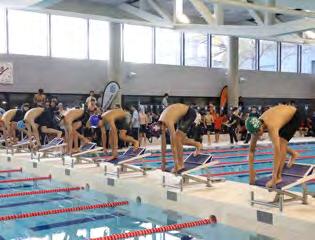
All students had a blast at the House Swimming Carnival held at the end of Term 2. Congratulations to Macneil House, overall Senior School winners, followed closely by Robinson, with Schofield in third place. In Middle School, Summons House was victorious, followed by Macneil and Robinson. Well done to all students for demonstrating great enthusiasm and house spirit throughout the day.
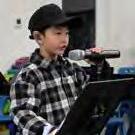
Our students joined thousands of others across Australia in celebrating the joy of storytelling with this year’s National Simultaneous Storytime book The Truck Cat by Deborah Frenkel. A heartwarming story about belonging, identity and finding home, The Truck Cat sparked thoughtful conversations in our Norge Village community. Our students were encouraged to reflect on where they belong and how they can help others feel a sense of belonging too.
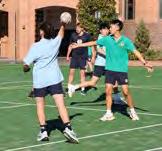

Senior students recently battled it out in the House Multi-Sport Competition.
Competitive house spirit was on display as Years 9-12 students showcased their athletic talents in various sports, including soccer, European handball and table tennis. Congratulations to the overall winner, Steven House!
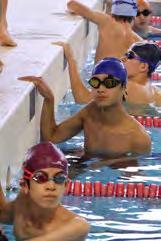
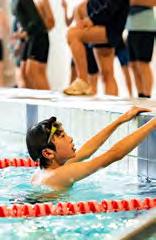
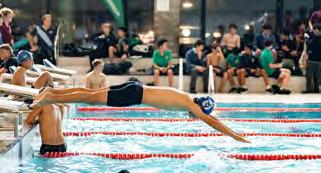
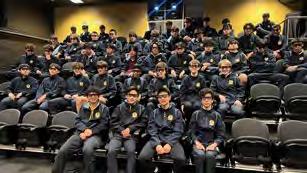
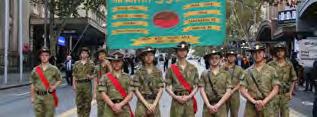
The CGS community came together for the annual Dawn Service on ANZAC Day. Our students also connected with the local community. Year 11 student Kieren Uffindel played a beautiful rendition of

Year 10 students completed compulsory occupational health and safety training to prepare for work experience. They also discussed ways to make the most of placements to build employability skills, make connections and research industries. Students visited Deakin University and Swinburne University – two universities that differentiate themselves with their offering of specialist courses, culture and community, work-integrated learning and research options.
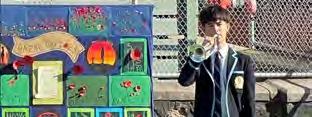
The Last Post and Rouse at both our Dawn Service and Deepdene Primary School’s Service. Members of the Camberwell Grammar Cadet Unit proudly took part in commemorative services at the 1000 Steps Memorial and the Commemorative March in Melbourne.
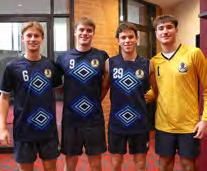
During National Reconciliation Week, we welcomed Mr Glen Brennan to both our community Reconciliation Week Breakfast and the Senior School Assembly. Mr Lachlan Crawford also spoke at Assembly about the Reconciliation Round for sport and the significance of the CGS Indigenous jersey, designed by past Indigenous student Alexander Greenaway (2021). Years 4 and 6 gathered on the KAO for the Reconciliation Round before commencing their House Sport Competition. Students Kevin Shum (Year 4), Shreyas Munnar (Year 6)
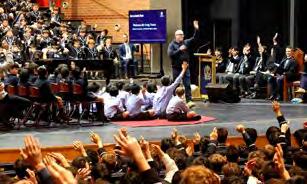
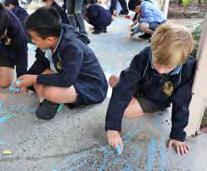
and Lachlan Croxford (Year 6) spoke on behalf of their year levels.
Meanwhile, Junior School students came together for a meaningful Reconciliation Assembly. In their House Groups, students gathered around yarning circles to reflect on what respect means. To bring their reflections to life, students created beautiful chalk drawings, forming a colourful ‘Pathway of Respect’ across the Junior School –a powerful reminder of unity and understanding.
We celebrated Men’s Health Week by shining a light on the physical, mental and emotional wellbeing of boys and men in our community. Our Whole School Assembly featured Mr Craig Turton, co-founder of 100 Words Mate to Mate, who shared his inspiring journey of building community through honest conversation and connection. Students from across the school spoke on topics ranging from friendship and physical health to the courage it takes to seek help.

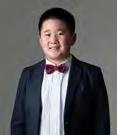
The Kingussie Trio of Gabriel Liu (Year 9), Dillon Chan (Year 8) and David Chon (Year 9) performed live on air at 3MBS as part of the competition, The Talent. Year 7 pianist, Lucas Cai, also performed live for the competition.
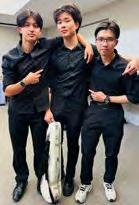
Bassist Derek Wei (Year 10), violinist Nathan Wayne (Year 11) and oboist Isaac Wong (Year 9) took part in the Australian Youth Orchestra’s Young Symphonists program in Canberra. Our musicians performed alongside the finest Australian young musicians in a stunning performance of Mussorgsky’s Pictures at an Exhibition under the baton of Maestro Luke Dollman.
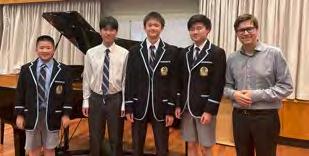
Finnish master-musician Mr Paavali Jumppanen is the Artistic Director of the Australian National Academy of Music. He gave an enthralling and entertaining class for Camberwell’s community of pianists.

We welcomed staff from the University of Melbourne’s Brass Department. Professor Don Immel, Associate Professor Joel Brennan and Ms Carla Blackwood came and worked with our brass students. It was an enriching and joyous occasion.
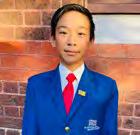

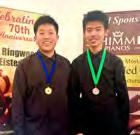
Congratulations to Jeremy Shen (Year 8), who has been admitted to the rank of Chorister with the Australian Boys Choir. Jeremy has worked hard to become a skilled and reliable musician.
Dillon Chan (Year 8) performed a special lunchtime concert at St Paul’s Cathedral titled A Chopin Tribute, sharing the same pieces that wowed an international jury in Switzerland with a proud Melbourne audience.
Year 9 Cellists Gabriel Liu and Christopher Ran competed in the Ringwood Eisteddfod’s Stringed Instrument Concerto Section. Gabriel was awarded first prize for his Elgar Concerto and Christopher was awarded 3rd Prize for his Dvořák Concerto

Guitar students participated in a masterclass led by Dr Ken Murray, who has forged a distinctive career as a guitarist, blending elements of performance, composition, teaching and research. The students had a valuable opportunity to play for him and gain feedback on their technical work and repertoire.

MSO violinist Isin Cakmakcioglu visited the violin/viola class. The class explored avoiding tension in the left hand, lightness in shifting and flexibility in the bow hold.
At Camberwell Grammar School, belonging is shaped by moments both big and small. Here’s what students shared when asked about the moments and places that make them feel included, valued and connected.
Being able to express my feelings to others.
Peter Shihata (Year 10)
Being a part of extracurricular activities makes me feel like I am contributing to the school.
Aran Ganesvaran (Year 9)
The community and shared experiences with others help make me feel included and valued at the school.
Sean Tseng (Year 9)

There’s always someone to hang out with or shoot hoops with at lunch. People are friendly, and it’s easy to be yourself here. The teachers are supportive and take the time to get to know you, which makes school feel like a safe and welcoming place.
William Harvey (Year 7)
While it’s nice to receive commendations and advice from teachers, it’s really special when another student is interested and engaged by your work. Whether constructive feedback or simple encouragement, it reflects the kindness and collaborative learning that our community values.
Max Helmer (Year 12)
I love the extracurricular activities (STEM Racing, Robotics) as I always participate in a group, and doing my job while also assisting my group makes me feel valued and needed.
William Chu (Year 8)
Tutor group is a small thing that makes me feel included, as getting to know how others are doing makes me feel like I am a responsible Year 12, looking after the next generation.
Dennis Shaliga (Year 12)
The school community is so welcoming. From popping into the art rooms to do some art at lunch, or helping out with making the Christmas puddings with my mum during exam week, I love the ‘go for it’ attitude of the school. Activities such as tour guiding and Rotary allow me to meet other like-minded people, not just from my year level.
Jian Yao Choong (Year 9)
The supportive teachers, such as my Tutor and Head of House.
Simon
Being in a good environment of cricket players in the Firsts and having a great group of friends who surround me.
Ranen Gandhi (Year 9)
Where at school do you feel like you most belong - and why?
I feel completely relaxed and in the zone in art class. I forget about everything else and just focus on my brush and my canvas.
William Chu (Year 8)
I feel like I most belong at school in my Form and Tutor groups. This year I entered Senior School and many things around me changed; however, my Tutor helped me adjust and greet others in the Tutor Group with Uno, Easter egg hunts and more.
Jian Yao Choong (Year 9)
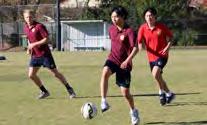
In school productions with people who are expressive and not afraid to be themselves and ‘be free’.
Aiden Tsui (Year 11)
I feel most like I belong in my Form classroom. I do everything there, and it’s like my own mini home inside the school. All my friends are there, my Form teacher and most of my classes. I feel very comfortable there.


In the cafeteria where I can enjoy meeting up and talking with my friends to catch up on our days so far.
Ethan J Lee (Year 9)
When I’m on the basketball court with my friends or during PE. I also feel part of the group in my House activities because everyone supports each other and works as a team. It’s fun being involved and knowing there’s a place where you fit in.
William Harvey (Year 7)

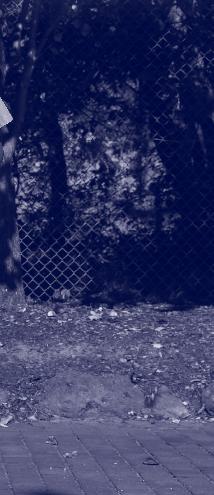
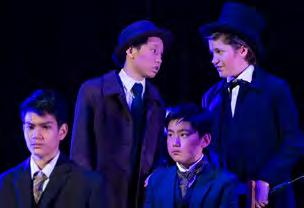

Friendships that are comforting and kind. This is the best part of CGS, the amazing people.
Matthew Kozul (Year 7)
I feel connected to people by our shared experiences, such as camp and fun excursions.
Max Beardsley (Year 8)
The support I received from everyone this semester when I was struggling with my health.
Ethan J Lee (Year 9)
The extracurriculars that our school offers allow us to be united and connected through mutual interests and passions, ensuring stronger links between peers and teachers alike.
Christopher Khong (Year 12)
The friendships and shared experiences of the Year 7 and 8 Camp were amazing and made me a lot closer to my friends, and I gained many new ones.
Jack
The Summons locker area, where I hang out with my friends at lunch and recess.
Charlie Malic (Year 9)
The Year 12 Common Room, as I know that everyone in there is going through the same, sometimes rough, sometimes wonderful, time as me, and that they can all be relied on to push each other through to the finish.
Christopher Khong (Year 12)
The place I feel I most belong is the Library, as it is a calm place where I can get lost in a book.
Navin
Being around my teammates in school sport (I do AFL).
Max Beardsley (Year 8)
Talking with friends in the cafeteria at lunch helps me feel connected. Sharing stories, jokes and just hanging out makes school more fun. Being part of group work or House activities also helps build friendships and a sense of belonging.
William Harvey (Year 7)
The teachers at CGS are always supportive of anything I’m working on or through anything I’m struggling with. It’s reassuring to know there’s someone I can turn to for help when I need it. I also value spending time with my friends; whether we’re chatting about recent events and shared interests, or just doing schoolwork in their company, they keep me grounded and motivated.
Max Helmer (Year 12)
The caring and supportive nature of teachers helps me feel valued, as teachers show a genuine interest in not just my studies, but aspirations beyond the school as well.
Sean Tseng (Year 9)
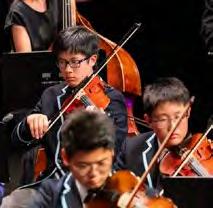
Recently, I took part in The Pirates of Penzance. Everyone was supportive and encouraging. Drama has helped me feel connected to many others, helping me meet many role models, friends and leaders throughout my short time here so far in Senior School.
Jian Yao Choong (Year 9)
The House activities, from House Music to House Athletics, are amazing ways I feel connected to others at school, having a rivalry with others and also having fun while competing alongside my friends.
Dennis Shaliga (Year 12)
My friends all share similar goals in terms of academics and I feel that we all fit together as a group.
Charlie Malic (Year 9)
Doing an activity together, such as playing soccer.
Peter Shihata (Year 10)
The indoor basketball courts are where I feel like I belong most. They are open every lunchtime and during the holidays and it’s a great way to meet up with friends. The kind and friendly sports staff who are there are always up for a nice chat.
Jackson Norman (Year 8)
Either the easternmost bench in the Senior School amphitheatre, or the Middle School DnD Club.
Drew
The classrooms help me focus on studies whilst also socialising.
Timmy Shu (Year 11)
I always make time to visit the Senior School Library, especially during my study periods. The cosy and calm atmosphere makes it a great place to focus, and the staff are always friendly and welcoming. There’s usually an ongoing event or activity, which keeps things interesting—I especially enjoy working on each new jigsaw puzzle.
Max Helmer (Year 12)
There are many spaces I feel I belong to, including the Music Department –connecting with friends and teachers, uniting as one to make enjoyable music and deepen relationships with one another. The joy of creating music with classmates, peers and friends cannot be matched by other experiences.
Sean Tseng (Year 9)
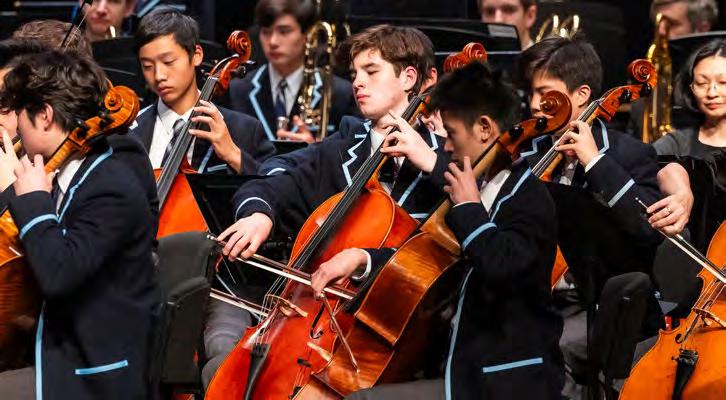
The 2025 Mid-Year Concert marked the first of the two major concerts in the music calendar. The months of preparation and countless early morning and late afternoon rehearsals were put to the test with this exciting concert in a new format, consisting of only Middle and Senior School ensembles.
The performances offered a variety of genres for the audience to enjoy, ranging from Gustav Holst’s dark, brooding Mars from ‘The Planets’ performed by the Symphony Orchestra, to Josef Suk’s heart-wrenchingly beautiful Serenade for Strings. In a sharp contrast, we had spirited performances from the CGS Drumline and a variety of talented interludes to keep the night rolling on. And who could forget our Director of Music, Mr Bishop, enlisting the help of the audience to bring the Anvil Chorus to life. The night culminated with a dazzling rendition of Nino Rota’s Divertimento Concertante from Year 12 double bassist Charles Taliadoros

The evening demonstrated the incredible talent and dedication of all students across all year levels. It’s also a great representation of the incredible knowledge and insight that the staff give to make these concerts possible. This concert was a great testament to all the work and preparation that goes on behind the scenes, and showcased the fabulous music community and school spirit that we have at Camberwell. As we mark the mid-way point of the school year with this concert, we prepare to embark on a thrilling journey as we begin preparations for the September Concert.
Nicholas Branson Captain of Music
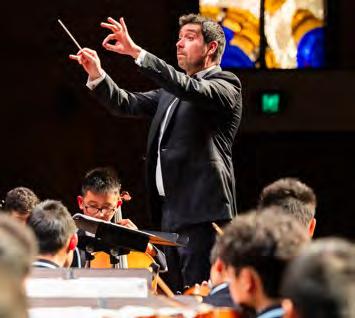
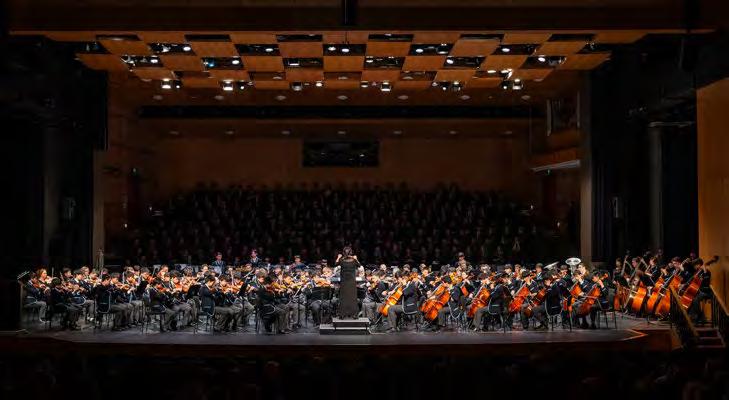

This concert was a great testament to all the work and preparation that goes on behind the scenes, and showcased the fabulous music community and school spirit that we have at Camberwell.’

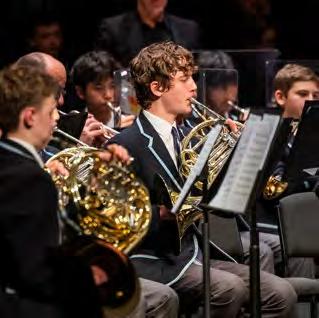

‘Following the outstanding Mid-Year Concert, the annual CGS Jazz Night was the next performance to light up the Middleton Theatre.’
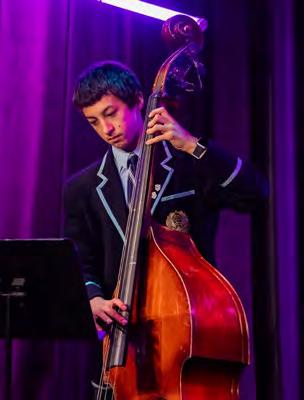

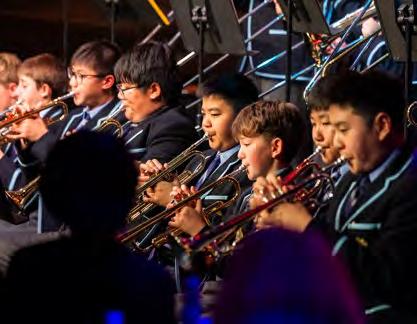
Following the outstanding Mid-Year Concert, the annual CGS Jazz Night was the next performance to light up the Middleton Theatre, now transformed into a vibrant jazz club. The evening opened with the Guitar Ensemble’s take on Zappa’s Peaches en Regalia, followed by the Middle School Stage Band under Ms Wostry, showcasing the talent of Camberwell’s younger musicians. Crowd favourites the Brass Bandits returned with Brooklyn and TNT, featuring tight solos from several members.
While guests enjoyed drinks and platters courtesy of the Friends of Performing Arts, several standout vocal acts took the stage, particularly duets by Jade Bishop (Year 12) and Frank Roodenburg (Year 12) and brothers Nicholas (Year 9) and Harrison Lipscombe (Year 11),
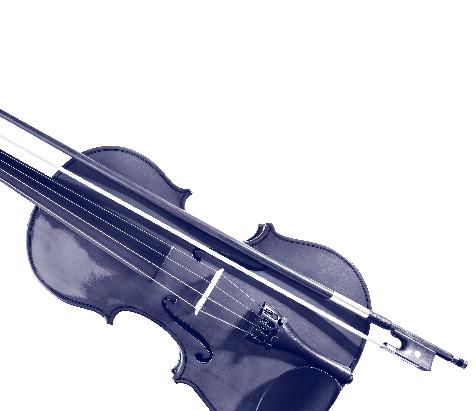
as well as Fraser Rowe’s (Year 12) rendition of Still Alive from Portal and Thomas Klebanowski (Year 11) taking on Day and Night. Another highlight was the Big Band’s performance of Duke Ellington’s Caravan, with drummer James Buick (Year 11) tackling the iconic kit solo made famous in Whiplash
The Senior School Saxophone Quartet impressed with Tomasz Spiewak’s Latin Bop, and the night concluded, as is tradition, with the Senior School Stage Band delivering Splanky and Softly, As In a Morning Sunrise, showcasing Camberwell’s finest jazz musicians in a fitting finale.
A massive thanks to Mrs Johnson, Ms Carmichael, Mr Feldt, Mr Johnston and Mr Bishop for helping to create such a memorable evening of jazz.
Charles Taliadoros (Year 12)
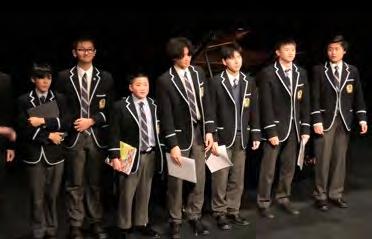
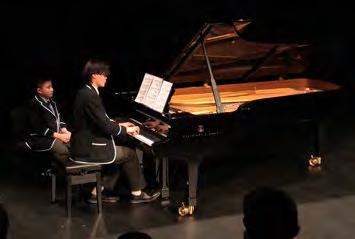
On 5 June, the Piano Academy presented one of its most ambitious concerts to date — a complete performance of Beethoven’s 33 Variations on a Waltz by Diabelli. Known for its technical demands and length, this monumental work pushed all students to new heights and offered the audience a dynamic journey through Beethoven’s genius.
In keeping with Academy tradition, each variation was paired with a visual element — a photo chosen by the performer. This year, however, students were challenged to take it a step further: to create their own artistic ‘variation’ of the iconic Beethoven portrait. The results were as diverse as the music itself, ranging from bold

digital reinterpretations to subtle edits that mirrored the performers’ interpretations of their assigned pieces.
Each student tackled multiple variations, bringing their interpretation to the stage. From the playful early sections to the profound intensity of the later ones, the concert offered a rich and varied experience, all drawn from a single waltz theme.
A heartfelt thank you to all students, families and staff who made this performance possible. We look forward to welcoming you back for next year’s piano project!
Tyler Li (Year 11)

The Junior School Soirées are an opportunity for our youngest musicians to showcase their learning in a small performance space. Soirées were originally a small evening gathering (from the French ‘soir’ meaning ‘evening’) where composers, artists and writers would share their compositions amongst a small group of friends.
We had musicians from all parts of the Junior School with music from Mozart to Morricone, Chopin to Charpentier and Borodin to Beethoven. Zach Wai (Year 5) performed Mozart’s The Bird Catcher’s Song from The Magic Flute.

Aaron Lai (Year 5) performed a piano duet with his brother, Marcus Lai (Year 9), on flute. We had some of our youngest musicians who are part of our early years piano program, Michael Lee (Prep), Ethan Liang (Year 1) and Jordan Tang (Year 2).
Congratulations to all the students who worked diligently to prepare their repertoire and perform confidently and musically.
Mr Alex St Vincent Welch Head of Junior School Music
We all have those things on our mental to-do list that never quite get done. ‘Read more’ often seems to float around there, gathering dust. It’s an easy thing to push aside in favour of more urgent tasks. But in a world where so many of us are feeling the pinch of mental health challenges, it’s worth taking a moment to reconsider that seemingly simple act of picking up a book because it might just be the most enjoyable self-care you can imagine.
According to a University of Sussex study (2009), just six minutes of reading can reduce stress levels by up to 68%. The immersive quality of reading helps slow your heart rate and ease muscle tension almost immediately. And you can feel it: those tense shoulders start to loosen and the outside world goes blissfully quiet. You’re not just engaged; you’re unwinding. The endless mental chatter can start to fade away.
And ditching the blue light of screens for a physical book before bed isn’t just good advice, it will revolutionise your sleep. Instead of over-stimulating your brain with endless scrolling (which even we’re guilty of!), a good book gently guides it towards rest mode. Whether you’re reading a rumpled paperback or drifting off to a soothing audiobook, it all helps you towards a better snooze.
As you wake up following a night of reading, your clever brain has been quietly working behind the scenes. While you were exploring fictional worlds, you were also building empathy, expanding your world-view and boosting your vocabulary. This isn’t just about learning new words, it’s about understanding different perspectives and connecting with characters who face challenges, triumphs and dilemmas not unlike our own. You gain new insights, fresh perspectives and a richer way of connecting with ideas and people. Whether
it’s historical fiction transporting you to another era, a thrilling mystery sharpening your deductive skills, or a poignant drama broadening your emotional landscape, every page offers a unique opportunity for growth.
In a world that constantly demands our attention with notifications and alerts, settling down with a book forces us to slow down and focus on one thing. This deliberate act of concentration can be incredibly calming, training our brains to be more present. Reading fosters a sense of mindfulness. It’s a quiet rebellion against the noise, offering a peaceful sanctuary for your thoughts. So, next time life feels a bit much, or you’re just looking for a delightful escape, just grab a book. It’s an instant miniholiday for your mind.
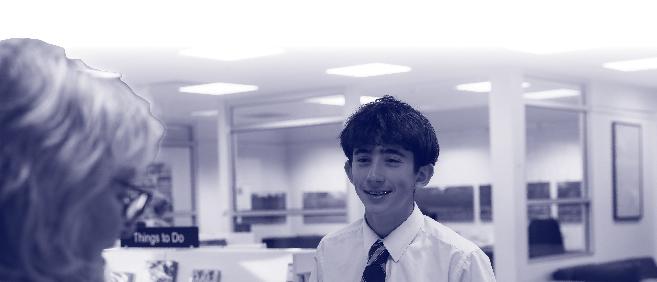
The Weickhardt Library is an excellent place to start your reading adventure. Pick up a copy of our Winter Reading Guide (isu.pub/JDkjhWB), borrow as many books as you can carry, or check out what we can offer online through BorrowBox. At the time of writing, we are finalising our schedule for LitFest (running 4-8 August), which will feature author talks, writing competitions and exciting trivia. We hope to see you soon!
Ms Cairistiona Tait, Head of Library and Information Services and Ms Kaitlyn Woods, Digital Services Librarian


Here at Camberwell Grammar, our Strength and Conditioning (S&C) team believes that wellbeing is more than physical fitness. Rather, it’s a holistic approach that encompasses the physical, mental and emotional health of each individual. Our goal is to help each student discover a sense of belonging, using physical activity as a meaningful way to support and enhance all aspects of their wellbeing.

Our team helps all students to thrive physically, whether it’s through working towards a new personal best or trying strength training for the first time. Our programs, and the welcoming environment of the Weights Room, are designed to help students build strength, move with confidence and support their overall health in a way that suits their journey. Senior School student Chandler shares his experience: ‘I enjoy coming to the gym as it’s a great space that provides a variety of recovery techniques to enhance my performances. I can gain easy and adaptable access to my sporting load to find optimal times to work out or recover.’
During a recent Year 8 PE session in the Weights Room, a student was learning how to deadlift. S&C Coach Louis stepped in with a dowel stick to teach proper hip hinge technique, helping them build safe movement habits. Nearby, another student recovering from an ankle injury was completing a tailored strength session with Coach Jeff, focusing on balance and stability. These small moments highlight that physical wellbeing isn’t just about performance, it’s about learning to move well, staying active and building confidence, step by step.
Movement does so much more than keep us fit. It lifts our mood, eases anxiety and helps build emotional resilience. At the heart of what we do is a simple goal: to help every student discover the kind of movement that brings them joy and a sense of fulfilment in their daily lives. When exercise is fun and meaningful, it becomes something for our students to look forward to, not a chore. ‘The gym is always a place where I feel welcome, mostly due to the friendly coaches there,’ says Daniel Kathir adds, ‘The coaches are incredibly welcoming and are always ready to support and motivate.’
As part of our work beyond the four walls of the Weights Room, we love getting involved in Junior School Huff ‘n’ Puff. Just this term, I watched our Year 3 students in fits of laughter playing Octopus, dodging and weaving across the court with pure joy. Later that day, back in the
Weights Room, a couple of Year 12 students were quietly working through a mobility session while reflecting on a tough football loss. These moments, from opposite ends of the school journey, show how physical activity can bring students together in different but meaningful ways.
Exercise is one of the most powerful tools we have to boost focus, clear the mind and ease stress. While the physical benefits are well known, helping our students understand how movement supports their mental wellbeing is just as important. Freddie enjoys the gym space because ‘it helps me clear my mind and focus on my goals. The environment motivates me to push myself and stay consistent with my fitness routine. I also like being around others who are working hard because it creates a positive and energetic vibe that keeps me going.’ Felix describes the CGS gym as ‘an extremely welcoming and safe space, with access to a variety of different training options. All the staff are tremendously kind and always give me the perfect advice for any problems I have.’
At the heart of the S&C Department is a simple message: movement plays a big role in feeling good, physically and mentally. This year, we have worked with Year 7 students in our Learn to Lift program, helping them build confidence with basic training routines while having fun with their mates. A more experienced Year 11 student in the Athlete Development Program has learned how to adjust their training load during high study periods or training weeks to manage stress without dropping momentum.
CGS has over 1300 students and each one is unique. What motivates one may not inspire the next. We aim to help discover the methods of physical activity and movement that resonate with each student. That could be weight training, running, cross training, sport or just a leisurely walk – the key is finding out what each student loves while educating them about the physical, mental and emotional benefits of movement.
Mr Josh Holding
Acting Head
of Strength and Conditioning

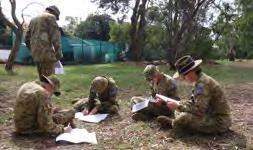
For the first two and a half days of the April holidays, 24 cadets from the Camberwell Grammar School Army Cadet Unit participated in a Junior Leaders Course run by the Unit itself. All candidates successfully completed the course, gaining valuable leadership experience and building stronger connections with their peers.
In line with the Army Cadet and Unit’s philosophy of ‘by cadets, for cadets’, the lessons were largely delivered by senior cadets, including Year 12 students Cadet Under Officer (CUO) Kris Vos-Rutter, the Senior CUO, and Cadet Warrant Officer Class One (CDTWO1) Owen Wu. They were supported by Non-Commissioned Officers (NCOs) in Years 11 and 12, who also assessed candidates. Adult staff played a mentoring role, providing supervision and guidance throughout the program.
Candidates started with theory lessons to understand the foundations of leadership, then put their learning into practice. They learned how to teach a basic theory lesson (covering topics like camouflage, concealment and radio telephone procedure), and also worked on preparing and delivering formal orders. As part of their assessments, candidates conducted a theory lesson, delivered a mock set of formal orders and led a section of cadets through a navigation exercise. The focus was on building practical, hands - o n experience, and every candidate rose to the challenge.
All candidates met the requirements of the course and many have already taken on roles with the Unit as Cadet Lance Corporals (CDTLCPL) or Cadet Corporals (CDTCPL). These roles carry significant responsibility. Year 10 and
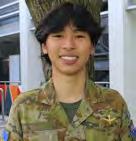
11 CDTCPLs now oversee the mentoring, welfare and training of a section of roughly 7-10 cadets from Years 9 and 10, assisted by a CDTLCPL and supported by cadet sergeants and CUOs. This level of responsibility is unique within the school, making the Cadet Unit one of the only places where students at this age can practice genuine, hands-on leadership.
While the Junior Leaders Course develops concrete leadership and teaching abilities, its benefits go well beyond formal training. By challenging cadets to step out of their comfort zones, it builds resilience and boosts their confidence. The experience also deepens their sense of belonging to the Unit and strengthens the friendships that form along the way.
Through working in small syndicates with cadets they wouldn’t normally interact with, candidates learn the valuable lesson of working with a diverse range of people – an experience that mirrors real-world teamwork and problem-solving. The Unit is grateful to its senior leaders for dedicating their time and effort to making the course a success, and to the adult staff who supervised and supported the candidates throughout these formative days, LT (AAC) D Rayner, the training officer, CAPT (AAC) D Rodgers, the Officer Commanding the Unit, and CAPT (AAC) M E Daniel.
Mr Michael E Daniel
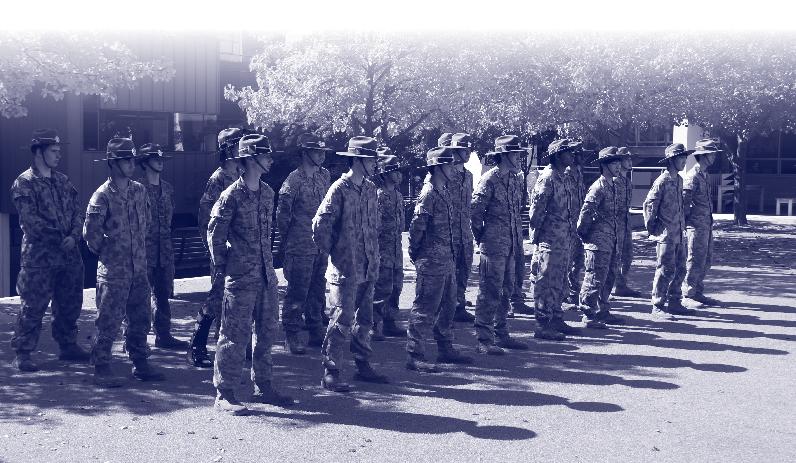
Cadet Sergeant (CDTSGT) Brian Lee (Year 11) was selected as one of only 13 Victorian Cadets to attend the Adventure Training Award (ATA) national cadet activity. This is considered the most physically and mentally challenging activity a cadet can undertake in the Australian Army Cadets.
The camp was held at Lake Barrington, Tasmania from 6-11 April and included cadets from every brigade from different states and territories. During the activity, Brian completed 72 hours of non-stop activities including canyoning, abseiling, kayaking, problem-solving and hiking. Brian was awarded the golden boomerang and torch for completing ATA.
Congratulations Brian!

The bus approached the gate of Camp Manyung slowly, as if it was triumphantly crossing the finish line in a marathon. Everyone’s eyes lit up with anticipation as we stared at the unbelievable facilities and free time areas. Once the cabin groups were announced, each student ran towards their cabin with great excitement. We settled into holiday mode as we relaxed and made ourselves feel at home in our cozy cabins.
Over the next few days, we took part in a range of unforgettable activities that left us braver and filled with joy –from our screams echoing through the trees as we swooped down the giant swing, to the moment we all cheered one another high above the ground during the treetop challenge. Most importantly, we built friendships, shared laughs and created memories that will stay with us forever.
An extremely popular activity that pushed us out of our comfort zones was the giant swing. We all looked at the height of the swing, flabbergasted. It was like looking at the top of the Burj Khalifa! However, as we put on the wedgie-inducing safety harnesses, our courage was truly tested, but most of us decided to go to the very top.
We grasped the ropes with our trembling hands, shaking as sweat trickled down our bodies. We felt like the weight of the world was on our tense shoulders. Our hearts pounded in our chests like an ominous drumroll, hammering against us. We knew without a doubt that the end was near. We could feel ourselves being pulled into an endless dimension of suffering. Then, with a deep breath, we pulled the release rope.
Meals at camp were prepared with hard work and love for the students. Breakfasts were early, warm and nutritious, perfect after waking up in the cold. Lunch was usually eaten on the go – sandwiches, with healthy yet scrumptious fillings. Morning tea and afternoon tea were fruit and snacks that helped us retain our energy

for the remaining activities. Dinners were the best part, especially when we ate lasagna with garlic bread. That was mouthwatering! We roasted marshmallows over the campfire under the stars and watched a movie on the last night at camp. Eating together, laughing and sharing stories made every meal feel special.
Camp Manyung was, without a doubt, an unforgettable experience that improved our independence and pushed us out of our comfort zones. Each activity was meaningful and worthwhile. The camp was an absolute thriller and we would all happily go again.
Max Li and Jake Lin
I stood high, on a platform metres above the ground, but it felt like kilometres. My friend and I nodded our heads with a fleeting glance as we leapt onto the zipline. I watched as I flew, rapidly heading toward my friend in mid-air. As wind whistled through my ears, I outstretched my hand, causing a satisfying high five. The sound cracked like a whip, startling birds nearby, almost like an explosion echoing across the site. That high five from the treetop challenge was a moment I’ll never forget… Alexander Bhattacharjee and Zahab Chowdary
I grasped the rope with my trembling hand, shaking as sweat trickled down my body. I felt like the weight of the world was on my tired shoulders. I felt as fragile as a bug, ready to be crushed by the immense G-force as soon as I began my descent. My heart pounded as I pulled the release cord. My heart tried to evacuate my body via my throat.
Owen Zhao and Chris Jian
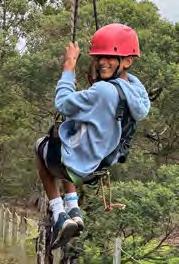


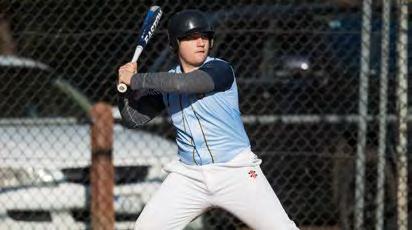
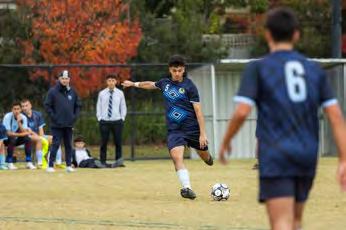
Term 2 has been an outstanding display of participation, teamwork and strong results across our Winter Sport Season. With seven of the nine AGSV rounds complete at the time of writing, our teams have demonstrated consistency, resilience and a strong commitment to each other and the school’s sporting values.
The Firsts Badminton team has had an exceptional season, remaining undefeated after seven rounds. Impressively, they’ve only dropped three sets out of 36 – a testament to their dominance and depth. With some senior players unavailable at times due to Badminton Victoria commitments, Division 2 players such as Winston Tan (Year 9) and Shine Huang (Year 10) have stepped up confidently. Owen Lim (Year 11), Meno Chu (Year 10) and Edward Lam (Year 11) have all delivered consistent performances, while Captain Chauncey Yu (Year 12) continues to lead by example. The team is well placed to secure its 11th consecutive AGSV Premiership and 24th overall in 31 years.
Our Hockey Firsts are also undefeated and, even with one round remaining, have already secured the right to host the Grand Final, to be played on Friday 1 August at Camberwell Hockey Club. Midfielders Monty Green (Year 12), Lachlan Hoyling (Year 10), Daniel Tsui (Year 11) and first-year players Thomas Tsui (Year 9) and Christopher Chinowuttichai (Year 9) have combined well to provide attacking flair and set up numerous scoring opportunities. With the last Premiership shared in 2021, the team is poised to challenge for the title this season.
Firsts Soccer have finished the home and away season in fifth, narrowly missing out on a place in the semi-finals. However, the highlight of the season was a memorable
2-0 win over ladder leaders Marcellin – their first victory against them in many years. Captain and goalkeeper Marko Maric (Year 12) was a steady influence at the back, Thomas Nania (Year 12) was reliable in defence, while Aston Monteleone (Year 11) delivered several breakaway goals.
Firsts Football recorded two wins throughout their season, including a strong performance against secondplaced PEGS, demonstrating the team’s potential when playing with confidence and cohesion.
The team demonstrated great effort in every match and made clear progress in skill development and team play. Notable contributors this season included Year 12 students James Orton, who dominated in the ruck, Sam Grlj with his speed and ball use through the midfield, Adam Li in defence and Luke Davidson in the forward line.
Our Cross Country squad is currently second behind perennial powerhouse Marcellin after four of six races. Standout athletes include Year 11 student James Alex (2nd in the Open division), Year 12 student Sachin Kunendra (4th in Open), Alexander Zabojec (2nd in Year 9), Lachlan Baxter and Edward Smith (1st and 3rd in Year 8), and Kevin Ma and Ryan Mok (2nd and 5th in Year 7). At the Athletics Victoria Cross Country Relays event, our Under 16 team of Edward Smith, Lachlan Baxter, Kevin Ma and Alexander Zabojec combined to secure a third-place finish.


Our Under 17 teams have faced a challenging season, while the Under 15 teams have had several strong wins. Notable players include Year 9 students Gabriel Liu and Derek Hu (Under 17), and Joshua Moulds (Year 7) and Jeffrey Zhong (Year 8) in the Under 15 division.
Participation in Fencing remains high, with 56 students involved from Years 7 to 12. In competition, Nicholas Smith (Year 11) placed 6th early in the season. More recently, Daniel Chen (Year 9) and Collin Huang (Year 7) finished 5th and 6th, respectively, out of 110 in the Junior Men’s Direct Elimination Round, while Nathan Wayne (Year 11) placed 8th out of 55 in the Senior Men’s division.
Interest remains strong in Real Tennis, with students developing skills and preparing for the annual CGS Championship in Term 3.
The Snowsports team has engaged in regular dry-land training to develop fitness and team cohesion, with some students also making regular use of the Weights Room. During the upcoming holidays, the team will attend Falls Creek Family Week, which includes pre-season training and the Camberwell Cup race.

Several students have proudly represented Victoria or Australia this term, or will soon.
• Football: Year 9 students Angus Dunstan and Freddie Hardman – 15 Years and Under SSV team
• Hockey: Luke Callander (Year 10) – 15 Years and Under SSV team, Monty Green and William Watson (Year 12) – Victorian Under 18 team, Lachlan Hoyling –Victorian Under 18 Development team
• S wimming: William Cao (Year 9) and Ryan Chung (Year 12) – SSV team
• Soccer: Luke Becvinovski (Year 10) – represented Australia at the Hohhot Under 16 Tournament in China and was selected in the Victorian Under 16 team
• Baseball: Joshua Moulds – Under 13 Intermediate Nationals, Melbourne Athletics
• Table Tennis: Gavin Li (Year 8) – Under 15 Victorian Boys A team
• Badminton: Rémi Foster (Year 9) – Para State team and won Gold in Open Standing Class Doubles; Joon Tham (Year 7), John Zhuang (Year 7), Owen Lim and Chauncey Yu participated in several Badminton Victoria events.
The Spring Season will commence immediately after Winter Season, featuring Athletics and Water Polo. All students are encouraged to participate in what is a valuable, inclusive and enjoyable part of our Sport Program.
During the holiday break, the CGS UK Cricket Tour offers students a remarkable opportunity to play up to seven matches while travelling through London, Cardiff and Bath. The squad has prepared well through regular net sessions and is eagerly anticipating the experience.
Mr Lachlan Crawford Head of Sport

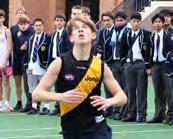
Street Soccer is all about fun, fast-paced football played in everyday clothes on urban surfaces. It was great to see so many of our soccer stars in their best ‘street style’, supporting Robinson House to raise money for a fantastic cause. All funds raised went to Kids Under Cover, a charity helping young people at risk of homelessness by strengthening their connection to family, community and education.
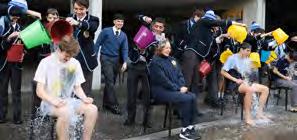
On 26 June, our community came together to support FightMND and raise vital awareness for Motor Neurone Disease. We were honoured to welcome Bec Daniher to Assembly, where she shared the story behind the campaign and inspired us to take action. Principal Mr Ben Jeacocke stepped up for the Ice Bucket Challenge, while a huge cohort of teachers and students followed at lunchtime. The sausage sizzle and FightMND beanies kept the crowd warm as we rallied together. A big thanks to everyone who donated and participated in Clifford House’s Big Freeze to support this very important cause. As a collective, we raised $5,937.70!

Over 70 students, parents and teachers attended the evening, which was filled with laughter and a healthy sense of competition. Ultimately, the expertise of the teachers proved too great, and they took first place. Rotary sold more than 150 raffle tickets, bringing funds raised from the event to over $2000. Thank you to all the generous sponsors for providing excellent prizes.
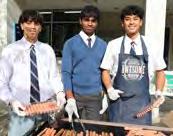
The Rotary Interact Club of Camberwell Grammar recently hosted a successful sausage sizzle to raise funds for UNHCR, the UN Refugee Agency. Organised by the dedicated Year 11 Interact leaders
Orlando Rofe, Kevin Ch’ng, Bach Tran and Owen Wu, and supported by enthusiastic Year 10 students, the event was a true reflection of Rotary’s motto, ‘Service Above Self’. The fundraiser brought the school community together in support of a global cause, raising over $1000, demonstrating the students’ commitment to leadership and meaningful service.
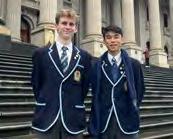
School Captain Charlie Weickhardt and Prefect Justin Kwan (both Year 12) represented Camberwell Grammar at a recent School Leaders Forum held at Parliament House. The event, hosted by local
MP Jess Wilson, brought together student leaders from across the electorate to discuss key issues facing young people today. Following a guided tour of Parliament, students had the opportunity to share their perspectives on both local and state matters.
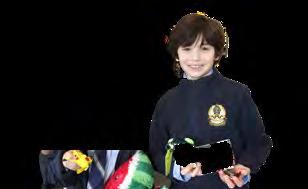
The Junior School Library was buzzing on 18 June as students browsed tables full of donated treasures at the Toy and Book Fair, organised by the Year 5 Student Leadership Executive. Thank you to all families across the school who donated so generously and to our Year 5 leaders for their efforts. Funds raised will support the Peter MacCallum Cancer Foundation.

The Push-Up Challenge has become a powerful example of our school’s commitment to community wellbeing and mental health awareness. With over 300 students and staff taking part, the event fostered a strong sense of unity and shared purpose, as participants pushed themselves physically to complete 3214 pushups from 4-26 June, while supporting an important cause. Together, they raised an impressive $6,500, demonstrating the school’s collective spirit and compassion. This initiative not only encouraged fitness but also opened up vital conversations around mental health, aligning closely with our values of care, resilience and service.
Orlando Rofe (Year
11)

Over the weekend of 24-25 May, 34 Camberwell Grammar volunteers from Years 10 – 12 took to the streets surrounding the School to support the Salvation Army’s Annual Red Shield Appeal. Thanks to the generosity of the Canterbury and Deepdene communities, students collected nearly $2,700. These funds go directly toward supporting vulnerable families across Melbourne. Well done to all involved in this important community initiative.
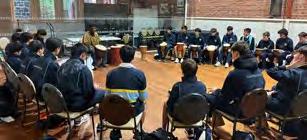
Year 9 students participated in a two-day postexamination program with one day on campus and the other in Melbourne’s CBD. The program aimed to broaden students’ understanding of social issues by exposing them to people and communities with lived experiences different from their own, particularly focusing on poverty and homelessness. Students engaged with individuals facing these challenges and the organisations supporting them, prompting meaningful reflection on their connections within their House groups and families, in the local community, and on a broader national and global scale. Working collaboratively in Houses, students concluded the program by developing a pledge to think and act with empathy in their daily lives and interactions.
Mr Roger Devine Year 9 and 10 Coordinator

Camberwell Grammar students ran in the annual ‘Run the Tan’. This event promotes a healthy and active lifestyle for all Australians and raises awareness about the positive impact running and exercise can have on mental health and wellbeing. Students across various year levels completed the 3.8 km loop. James Alex (Year 11) posted an impressive time of 12 minutes and 12 seconds! It was a wonderful event and we look forward to even more students joining us next year.
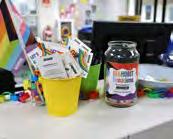
International Day Against Homophobia, Biphobia, Interphobia and Transphobia (IDAHOBIT) celebrates LGBTQIA+ people worldwide and raises awareness for the work still needed to combat discrimination. The Weickhardt Library raised money for Minus18, selling pens, badges and ribbons to support Australian LGBTQIA+ youth.
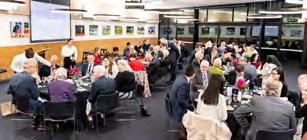
The Camberwell Grammar School Foundation recently hosted its inaugural Donor Appreciation and Roystead Society Dinner. The event brought together 70 of our most generous donors and supporters to hear about the long history of philanthropy at CGS and the impact of our David de Kretser Scholarships program. These scholarships provide comprehensive, needs-based financial support for students who would not otherwise have access to a Camberwell Grammar education.
Past and current parents, alumni, bequestors and supporters heard from leading alumni donor Paul Wheelton AM KSJ (1973) and from the families of scholarship recipients, who spoke of the transformational impact scholarships have had on their families.

Read more about the David de Kretser Scholarships
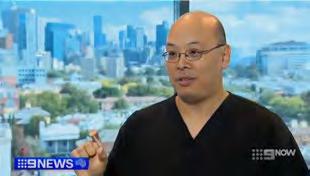
Epworth cardiologist Associate Professor Michael Wong (1997) recently performed Victoria’s first implantation of the AVEIR dual chamber leadless pacemaker — a groundbreaking new technology with no leads or visible scars compared to traditional pacemakers.
Michael holds public hospital appointments as Director of Cardiac Electrophysiology at Western Health (Sunshine and Footscray Hospitals) and at Royal Melbourne Hospital, internationally renowned for its work in Cardiac Electrophysiology and as the site where Australia’s first implantable pacemaker was developed in the 1960s.
Since the first procedure, Michael has implanted over a dozen AVEIR leadless pacemakers at Epworth Eastern and Richmond private hospitals. As a committee member of Epworth’s Cardiac Sciences Clinical Institute, he is one of only a select few qualified proctors in Australia — and the only one in Victoria — accredited to train other specialists in the use of this cutting-edge technology.

Named by TIME Magazine as one of its Top 200 inventions of 2023, the AVEIR leadless pacemaker offers multiple advantages for patients, including reduced pain, lower infection risk, no visible scarring and faster recovery times, while delivering all the clinical benefits of traditional pacemakers.
Michael was recently awarded a $98,000 Epworth Medical Foundation Innovation Grant to expand research into the technology’s future applications and travelled to the University Medical Centre in Amsterdam to collaborate with international colleagues.
Speaking on Channel 9 News, Michael described the procedure as ‘a game changer for cardiac patients — with two small, bullet-sized devices placed in each chamber of the heart, syncing together wirelessly. This is the technology of the future.’
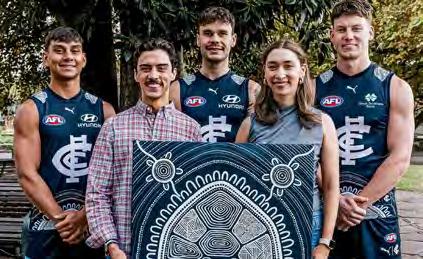
Congratulations to Luke Tieri (2019) and his sister Siena, proud Yorta Yorta artists and founders of Bayadherra, on designing the 2025 Carlton Football Club Indigenous Guernsey.
Their artwork pays homage to their Yorta Yorta heritage, weaving together cultural patterns and the Club’s connection to community, strength and unity.
At the heart of the design is the longnecked turtle, the Yorta Yorta totem and a symbol of resilience. Journey lines represent Indigenous players past and present, while yarning circles and flowing dots symbolise unity and impact.
Luke and Siena also drew inspiration from their grandfather, Glenn James OAM, the first Aboriginal VFL/ AFL umpire.
In a whole-club show of respect and celebration, the guernsey was worn across all four of Carlton’s teams –AFL, AFLW, VFL and VFLW.
Find out more about Luke and Siena’s design on the Carlton Football Club page (https://bit.ly/3HueaIf).

est
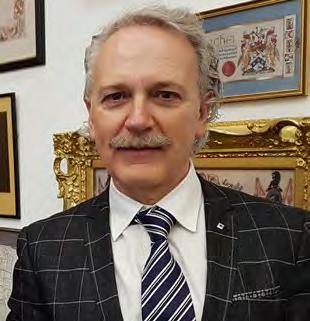
Michael Leopold Bula (1975) was awarded Summons House Colours for theatre in 1975 and won the French Prize in both 1974 and 1975 — an award that now bears his name.
Since graduating from CGS, Michael has built an extraordinary international legal career. He holds a B.A. in French and Italian, LL.B. (Melbourne University) and a Graduate Diploma in Notarial Practice (Victoria University). He is a Barrister and Solicitor (Victoria, ACT, NSW & Vanuatu) and a Notary Public (ACT, Victoria & Vanuatu), first admitted to practice in Victoria in 1982. Fluent in French and Italian, with additional languages including Spanish and Portuguese, Michael drafts legal and notarial acts in multiple languages.

Michael is Legal Counsel accredited to the French, Belgian and Estonian Embassies and the Italian Consulate General in Melbourne. He is also a NAATI certified French↔ English translator, operating his agency, Traductions Françaises.
He has served two terms as President of the Society of Notaries of Victoria (SNV), is a Fellow of the Australian and New Zealand College of Notaries (ANZCN), and has represented Australia at the International Union of Notaries. As Delegate for International Affairs, he has signed cooperation agreements with notarial bodies across Europe, Africa and beyond, promoting international collaboration where treaties do not exist.
In 2003, Michael was appointed Honorary Consul General of the Republic of Senegal. In 1998, he was decorated as Chevalier de l’Ordre National du Mérite by the French Government for his legal and cultural service, including as co-founder and Executive Director of Melbourne French Theatre Inc.
Michael has lectured at Victoria University’s Sir Zelman Cowen Centre since 2004, now serving as an Adjunct Research Fellow and is also a casual lecturer at Bond University. His work in multicultural affairs was recognised with the State of Victoria Award for Excellence in 2006.
As principal of Michael Bula Solicitors, International Lawyers and Notaries, founded in 1985, his firm specialises in cross-border legal matters with associated offices in Paris, Rome, Milan and Valletta, and partnerships across Europe, Africa and the Pacific.
Michael is a Freeman of the City of London and a Liveryman of the Worshipful Company of Scriveners — the first and only resident Australian practising notary to hold this distinction. He lives in Melbourne with his wife Maggie and daughters Heidi and Olivia.


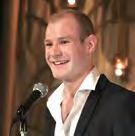
At Camberwell Grammar, I was an arts guy. I played trumpet in all the ensembles, learnt singing and piano, was heavily into my musical composing and arranging, even leading Summons House in the 2013 House Music Competition. I found a second passion in Drama, playing one of the leads in the Senior School Musical of Sweeney Todd (2012) as well as in my Theatre Studies classes.
After graduating in 2013, I set my sights on gaining entry to the Bachelor of Fine Arts course at the Victorian College of the Arts (VCA) and the Western Australian Academy of Performing Arts (WAAPA) – an ambitious goal considering they only accept 20 students each year out of thousands of applicants. Over the next three years, I trained in full time Musical Theatre courses, with the goal of eventually being accepted.
After this training, still with a desire to achieve my goal of studying Musical Theatre at University, I found myself funding a self-curated training program with new work in Aged Care. I began working as a Food Servers Assistant, however was quickly inspired to work towards being a Lifestyle Assistant. I completed a Certificate IV of Leisure and Health, soon finding myself specialising in caring for residents living with dementia and cognitive impairment. I was working full time as a Lifestyle Assistant in a job I loved, while also still working towards my dream of performing.
2017 was the final year I auditioned for the universities – and was once again unsuccessful. I reflected on what was a challenging half decade, filled with long and hard work followed by rejection. It took time for me to rebuild my confidence and invest in what would become my next chapter. I stayed away from big ticket auditions for a while, putting on my own solo cabaret in the Melbourne International Comedy Festival, as well as played leading roles in several community theatres around Melbourne.
At the end of 2019, however, I felt ready to pursue professional theatre opportunities, and was surprised to quickly be offered a 13-month contract working as a lead singer at Universal Studios, Japan.
Thirteen months soon turned into four years, working at Universal in the industry I loved. I performed an average of five shows a day, all while living in and exploring a new country and culture. I made friends and collaborated with talented people from around the world, composed original music for an award-winning audio drama series, and created and produced my own original musical. I was offered the opportunity to become a Musical Director for Universal, teaching the incoming cast of the Frog Choir within the Wizarding World of Harry Potter. I enjoyed revamping their musical score with new ideas, all while inspiring a new and talented group of performers.
By the start of 2024, it felt time to come home to Melbourne. I took a little time to reassess what I wanted to do next, first looking into music teaching and musical directing, however the powers that be had other plans.

An aged care facility in Malvern East was looking for a Leisure and Lifestyle Coordinator and I went into the interview with an open mind. As soon as I saw the potential of the home, I was inspired, accepting the position when offered.
Returning to my passion of caring for our ageing community, could not be more fulfilling. This year, I transitioned into the role of Wellbeing Manager –tasked with creating, facilitating and leading our care community in delivering an engaging wellbeing program around the interests and needs of our residents. I also have the opportunity to bring my passion for music and performing to work, occasionally jumping on the piano here and there.
Over the past couple of months, I have since reconnected with Camberwell Grammar, collaborating to bring more classical music to my residents. In May, we were blown away by the talents of The Kingussie Trio, whose inspired performance and professionalism rivalled that of our industry professionals.
I thank CGS for teaching me how fulfilling it is to work hard towards what you most enjoy, how to pick yourself up after working hard without the success you quite expected, for the importance of punctuality and diligence, and for the inspiration to care for those in need.
At this point, I no longer believe there is just one ‘dream job’ for everyone. Even after school, we are always learning and discovering more about ourselves and what we enjoy doing in each moment. I’m excited to continue my own personal journey, while working in an industry I am passionate about.
A few lessons I would impart to current students:
• School is designed to give options while helping discover what you enjoy, not to set you on a straight path into one career or lifestyle. Pursue what you love, because you’ll naturally want to work hard at it.
• Be open to trying new things. You’ll never know what you enjoy if you’re always assuming your interests. You learn more from trying than you do from succeeding. Pick yourself up, adjust and you’ll find the next goal that will probably be even better than the one before.
From its foundation in February 1886, Camberwell Grammar asserted its distinction as a school that cultivated the wellbeing of its 66 scholars, affording them a sense of belonging to an institution intended to mould their characters. Academic and commercial training were pillars of all such small-scale private schools for boys during this period, but few elevated the evolution of student wellbeing in the manner of CGS under the initial leadership of Arthur Taylor. Amongst some residents of this outskirt suburb, such sensitivity was often resented, and soon one Grammarian recalled the need to walk home in protective groups owing to ‘regular pitched battles with less privileged and envious state schoolboys’. Nevertheless, once on the campus, Grammarians felt secure.
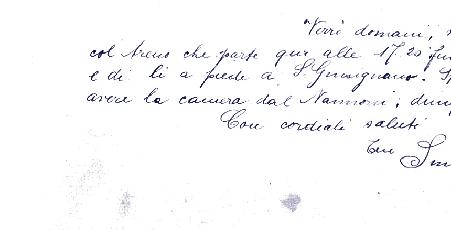
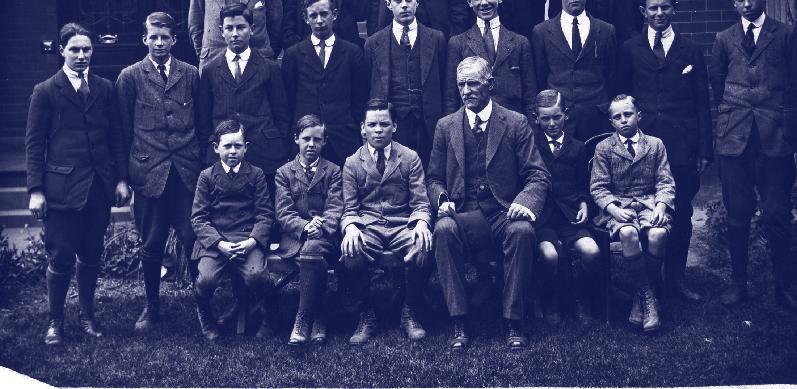
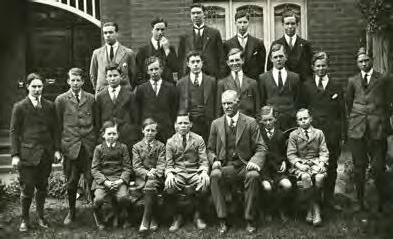
Headmaster Alfred Hall at the Kintore Street residence in 1918 with his diverse family of 19 boarders.
A good example of this commitment to student wellbeing from the very beginning is found in an examination of the small body of boarders – many forget that Camberwell Grammar was a boarding school from 1886 until 1950. There were never more than 30 such boarders (c.1921), but in the early days they constituted up to a quarter of the school population. Taylor had started at St John’s with four living with his family further up Burke Road, and with the move to Fermanagh Road, Prospect Hill in 1887, he had constructed his grand (still-standing) school residence with the boarders in mind. Mrs Taylor was entrusted with their care and she would wear clothing that made her look older to persuade school mothers that she was mature enough to look after their sons. This method worked and Fermanagh Road catered for up to 20 boarders, mostly boys from rural Victoria and Tasmania. Their upstairs bedrooms were advertised as having high ceilings and ‘splendid ventilation’ – boarders accessed their accommodation through a rear door, avoiding any disturbance of the family in their ground floor parlours.
Once Taylor sold the School in 1891, his successors, Messrs Hall and Gosman, maintained the practice. ‘Miss Gosman’ (sister of the co-principal) managed ‘domestic arrangements’, but the return to St John’s in 1897 under economic duress led to only limited places at Rockbank, a ‘very old-fashioned house’ in Burke Road near Denmark Hill Road opposite the renovated church buildings. At some time during this period, the boarding system was interrupted, but by 1907, Alfred Hall advertised his intention to renew it once the School moved to the more extensive Burke Hill campus in the following year.
Here, the boarders would thrive in the new school residence in Kintore Street, across the road from the main school.
The Burke Hill years from 1908-26 were golden years for the boarders – pictured with the ‘Old Boss’ are those of 1918, illustrating the full age range from ‘the Tinies’ to senior matriculants. There was a genuine family atmosphere between the Halls and their boarders. The couple funded their own annual ‘Boarders Prize’, provided ‘pocket-money’ and hosted their charges during the holidays at their Healesville country residence. On campus, Mrs Mary Hall and her sister Jessie were diligent upstairs in the residence – daily cold showers and weekly hot baths was the regimen for the boys, all of whom dined with the family downstairs consuming ‘good, home-cooked meals’ (usually steak or sausages) with daily yeast buns and bread-and-jam between meals. The healthy state of the boarders sometimes stimulated envy from some ‘day-boys’.
Once the School transitioned to an association with the Church of England from 1926-27, the new headmaster, Dr Buntine, and his wife Gladys were less enthusiastic about sharing with boarders – their attention was soon focused on an infant son. The quality of care for the boarders declined in the remaining years at Burke Hill and the numbers fell accordingly. One noted that the new diet of ‘boiled meat and onions…and sardines jammed in tin…gooseberry mixed with plum’ resulted in ‘pale and thin’ boarders.
The 1935 move to the Canterbury campus under Headmaster Tonkin offered renovated accommodation upstairs in Roystead and numbers grew again to 26 by 1942, but Council became increasingly concerned about the cost of maintaining roomy boarders in a period of scarce classroom accommodation. The lobbying of Mr Tonkin ensured their survival, but his successor in 1950, Michael Searle, was indifferent, Mrs Searle sharing the sentiments of Mrs Buntine a generation earlier – the couple preferred the privacy of upstairs for their family alone. So, at the end of Term 1, 1950, an important part of the School’s history came to an end and 20 boarders departed – no more matrons, no more dormitories, no more dining with the family, no more ‘good, homecooked meals’. Student wellbeing was now the monopoly of the growing number of ‘day-boys’.
Dr
David Bird School Historian and Archivist

ANZAC Day Dawn Service – Friday 25 April
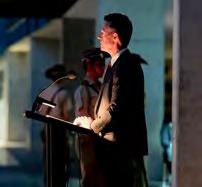
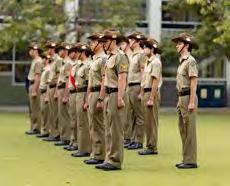

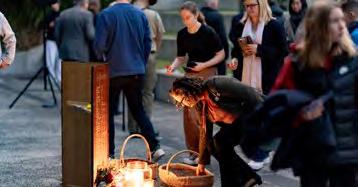

The Camberwell Grammar community came together on ANZAC Day to honour the memory of those who have served our country. The Service provided an opportunity to reflect on their sacrifices and give thanks. Year 11 student
Year 7 Mother’s Day Breakfast – Wednesday 7 May
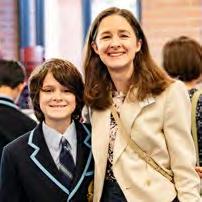
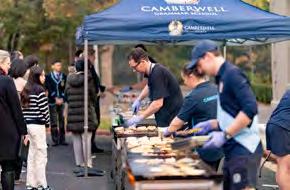
Kieren Uffindel played a beautiful rendition of The Last Post and Rouse on the CGS Bugle, both at our Dawn Service and at Deepdene Primary School’s ANZAC Service, with the whole school community in attendance.

Our Year 7 Mothers and Sons Breakfast was a heartwarming celebration of family and togetherness. It was a joy to witness so many smiles and meaningful moments shared between mums and sons. A big
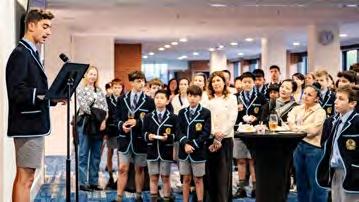
thank you to School Vice Captain Adam Li (Year 12) and Connor Chris (Year 8) for their touching and entertaining speeches.
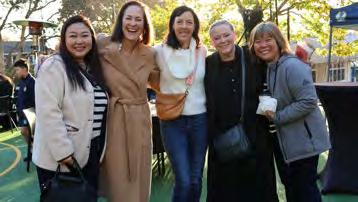

Junior School mums enjoyed a breakfast with their sons on the Junior School Green. Students also sang a beautiful mum-themed rendition of I Got Rhythm by George Gershwin, and families had the chance to capture
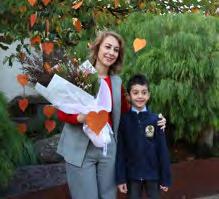
a special portrait together. Thank you to the parent volunteers and the Friends of Norge Committee for a fantastic event.
National Reconciliation Week Breakfast – Thursday 29 May
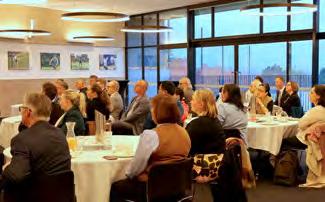
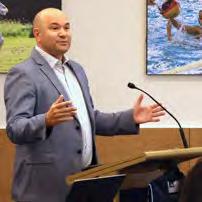
Our school community came together to mark National Reconciliation Week — a time to reflect, learn and commit to a more united and respectful Australia.
This year’s theme, ‘Bridging Now to Next’, invites us to honour the lessons of the past while looking forward with purpose and hope. We were honoured to welcome

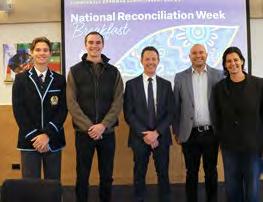
Glen Brennan, Lead Partner at KPMG Indigenous Services, school parent and proud Gomeroi man, to both our community Reconciliation Week Breakfast and the Senior School Assembly. Glen’s insights into truth-telling, cultural identity and transformation were powerful and inspiring.
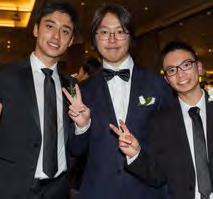
The Year 12 Formal at Leonda by the Yarra was a terrific celebration as the cohort took pause from the rhythm of SACs, homework and co-curricular events to take in

the joy of spending time together and to celebrate their individual and collective effort and achievements up to this point in their final year.
Careers Night – Thursday 3 April

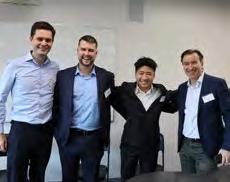
We are fortunate to have alumni across various careers and industries, who brought a wealth of experience to share with Year 10 students during Careers Night.
The alumni provided valuable insights into their daily routines, work-life balance, strategies for managing stress and the journey they took to reach their current roles. The panel discussions, which covered areas
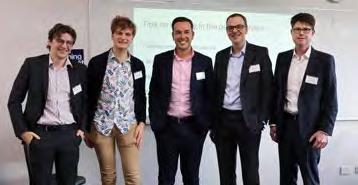
such as Building/Planning, Media, Marketing & Design, Business, Engineering, Law & Society, Medicine & Allied Health, Science and Technology, inspired students as they look ahead to work experience and life after school.
Thank you to the alumni for speaking to students and sharing their experiences.
50 Year Lunch (Class of 1975 and prior) – Sunday 4 May
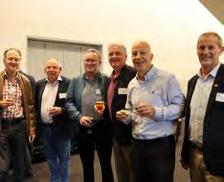
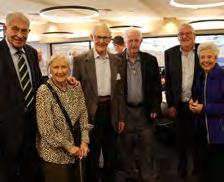
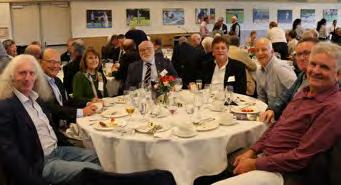
noted that although his six years at Camberwell Grammar represented just a small portion of his 67 years, the school instilled values that continue to guide him to this day.
Principal Ben Jeacocke gave his first welcome to the 50 Years Chapter, with grace by Rev Sean Gilbert (1975) and a heartfelt toast by Dean Newlan (1975), who shared reflections from his time as a student and parent. Dean
ACT Network Function – Wednesday 14 May
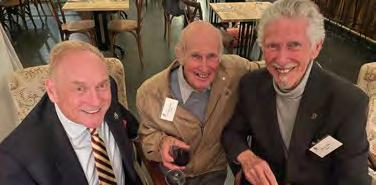
The attendees enjoyed a special performance by cast members of The Pirates of Penzance, first performed at the school in 1975. The day wrapped up with the singing of the school and sport songs.
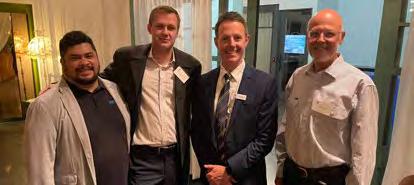
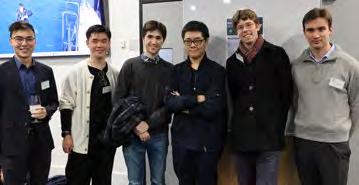
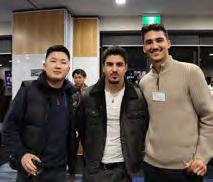
The Class of 2020 reunited to celebrate their five year reunion. Many former teachers joined the gathering, eager to catch up on what their past students have been doing since graduation. Some have embarked on their


first career journey, while others are continuing their studies or pursuing further education. It was especially heartwarming to see their smiling faces after spending much of Year 12 behind mandatory COVID masks.
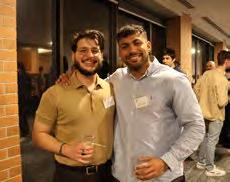
Principal Ben Jeacocke welcomed the group and highlighted the school’s recent sporting achievements. He noted that the Class of 2015 narrowly missed out on experiencing the new sports centre, which was built
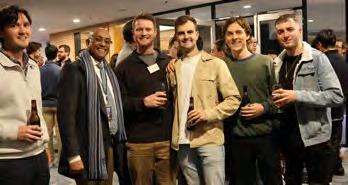
shortly after their graduation. Former classmates enjoyed reconnecting and sharing updates on their careers and personal lives.
Health and Wellbeing Evening – Wednesday 11 June

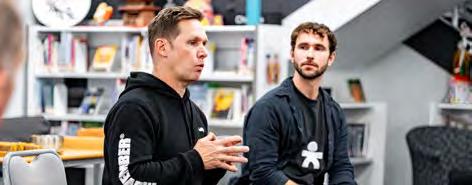
To celebrate Men’s Health Week, the Old Camberwell Grammarians’ Association, alongside Josh Glover (2014) from The Man Cave and Joel Hines, Speakeasy Facilitator, hosted a powerful Movember SpeakEasy workshop.
Alumni, current staff and parents of various ages shared their stories and together learnt the power of opening up and having authentic conversations to strengthen their connections. Bottling things up doesn’t only impact individuals — it can impact families, friendships and entire communities.
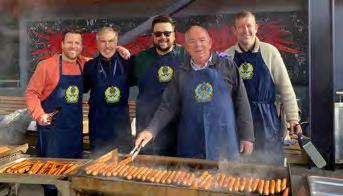
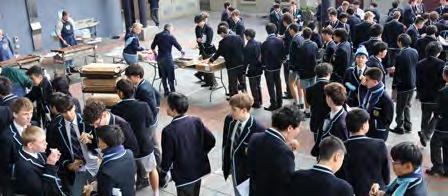
Senior students were delighted to find a BBQ sausage waiting for them during the break in the recent GAT (General Achievement Test). Members of the OCGA
NSW Network Function – Thursday 26 June
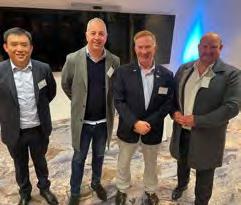
committee manned the BBQ, marking their third consecutive year supporting the event. With full stomachs and lifted spirits, students returned to tackle part two.
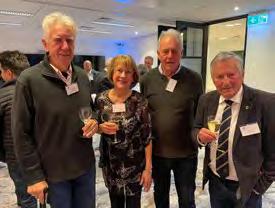
For over 20 years, Ian Robertson AO (Class of 1973) has graciously hosted the NSW Network Function at the Holding Redlich offices in Sydney. Alumni from business, law, engineering and allied health gathered for
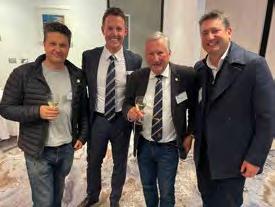
an enjoyable evening of drinks and savouries. The event consistently provides a valuable opportunity for alumni who have relocated to Sydney to build personal and professional connections.
Network Function – Friday 27 June


The Lobby Bar at The Langham, located on the beachfront, was the perfect venue for alumni living and working on the Gold Coast to come together. It was wonderful to see alumni of all ages attend the QLD
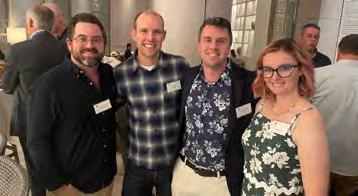
Network Function, some for the first time. The event provided a valuable opportunity to catch up on the latest school updates, especially when living and working interstate.

13 June 1963 – 22 March 2025
Brother to Adrian (1978).
27 April 1943 – 22 April 2025

Lance was born in Richmond and passed away in Dover, Tasmania, after a very short and acute illness. Growing up in Walsh Street Deepdene, he had a gate in his back fence into Camberwell Grammar and was in Robinson House. He was a great sprinter and his reports showed an aptitude for sport.
After completing his primary years at Camberwell, Lance moved to Scotch for his high school years. He played Rugby Union as ‘Break’ and was in the Victorian team for many years. He sent both his sons, Nicholas (1987) and Jonathan (1990 dec.), to Camberwell for their secondary schooling.
Lance worked as a senior executive in training, first in the plastics industry and then in the furniture industry. An avid sailor and classic car racer, he retired to Dover, Tasmania, where he could do both, a lot! He circumnavigated Tasmania on his Swanson 27 yacht. He restored three Triumphs and was a regular at Sandown Raceway in Victoria and then at Baskerville Raceway in Tasmania. Lance was still racing his 1960 TR3A when he was 80. ‘The oldest man in the oldest car’ was his claim to fame. After he raced, he would often say, ‘Just the best fun you can have sitting down!’
He is survived by his wife, Jennifer and son Nicholas. Sail on in Triumph, Dad.
Nicholas Hadaway (1987)
20 March 1953 – 22 March 2025
21 December 1936 – 7 September 2024
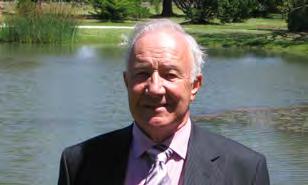
Brother to David (1949 dec.) and father to Andrew (1987).
Owen had an amazing career, fulfilling his childhood dream of becoming a policeman. He was a Chief Inspector when he retired early, having enjoyed a rich and selfless career of 28 years of service. Owen was one of Victoria Police’s first artists and FBI-trained identikit operators. He was a road traffic policing expert, detective, general duties policeman and, at the end of his career, in charge of the Training Research Unit at the Victoria Police Academy.
During Owen’s career, he completed professional development courses, including at the Monash Mt Eliza Leadership College and Victoria Police’s Airlie Officer Training College. Owen was a respected career policeman – my friends always commented, ‘Your Dad is too nice to be a policeman.’ Owen was also a recipient of the Queen’s Police Gold Medal Essay Competition, which invites submissions globally on policing and public administration topics.
After Victoria Police, Owen ran his own consulting business, including working for Price Waterhouse and local government.
Andrew Lloyd (1987)
12 January 1944 – 6 March 2025
Father to David (1987), Tony (2005) and Mark (2007).
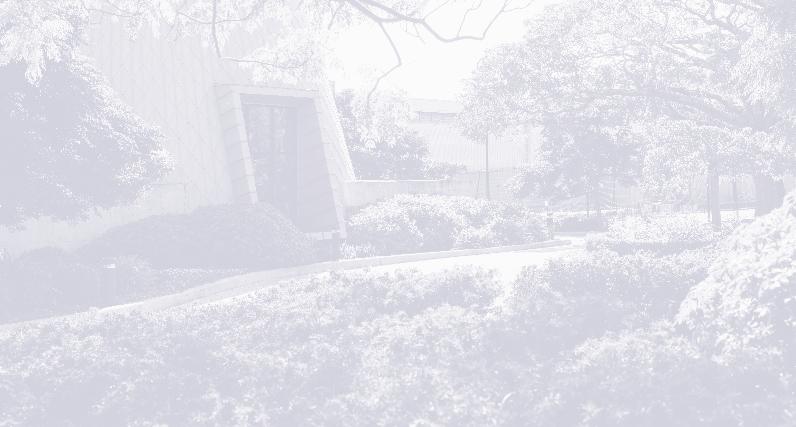
14 July 1946 – 15 April 2025


13 December 1948 – 8 May 2025
10 February 2003 – 5 December 2024

Sam attended Camberwell Grammar School from 20092021, where he was a muchloved student, known for his quiet warmth, creative spirit and musical talent.
Art was Sam’s greatest passion, and he poured his energy and imagination into every piece he created. His art was expressive and often a reflection of the way he saw the world, with depth and originality. It was
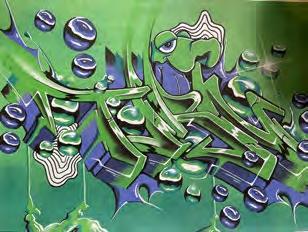

well known that Art was his favourite subject at school and he spent countless hours in the Art room where he was guided and encouraged to explore his love for it.
During the last few years, art continued to remain central to his life. Sam was a talented, respected and well-known street artist. He was commissioned to paint and work with some of Melbourne’s most respected artists. Sam also had a deep love for music and the electric guitar. He took lessons for many years and continued to play, join a band, and write his own music. He found endless joy and freedom in all his creative expressions.
Sam formed strong, lasting friendships with his gentle, kind, warm demeanour and left a meaningful impression on those who knew him. He will be remembered with great affection for the relationships he developed. Sam is deeply missed by me, his Mum, his Dad John and his brothers Charlie and Liam.
Sam will always be remembered for his exceptional art, which now stands as a lasting and visual legacy. We will forever miss his gentle soul and the light and love he brought to his family and friends.
Melissa Williams
Be part of the Camberwell Grammar community and keep up to date with our news and achievements by following us on our social media channels, reading our latest news, and more.
